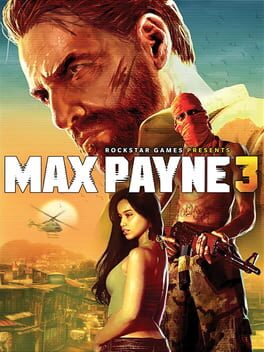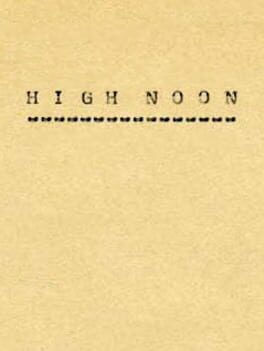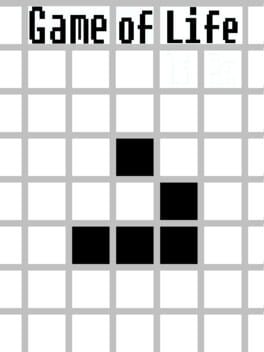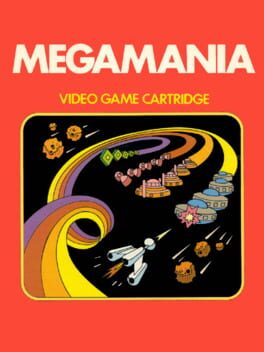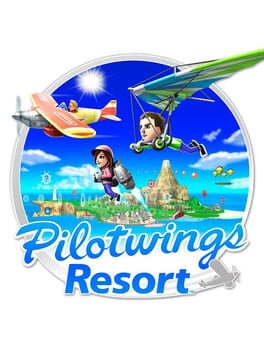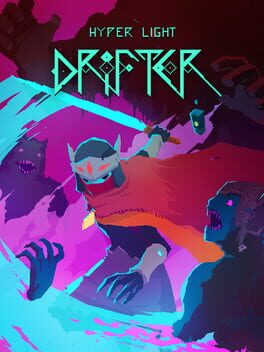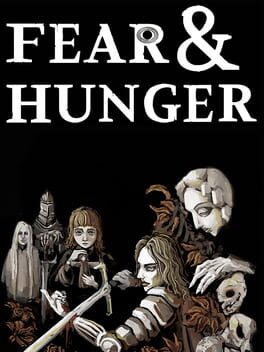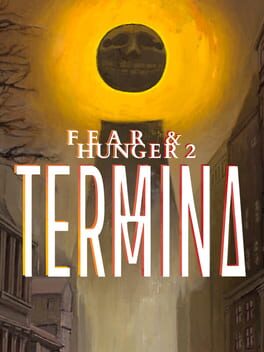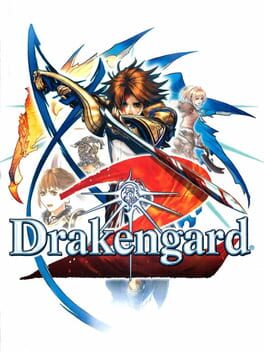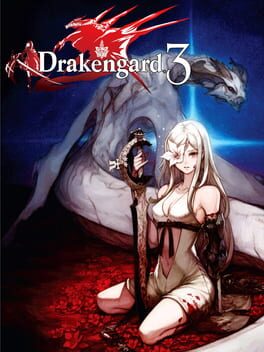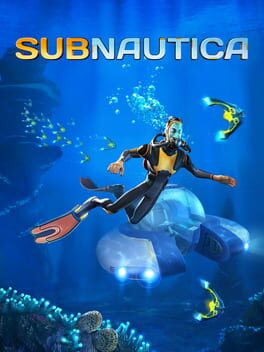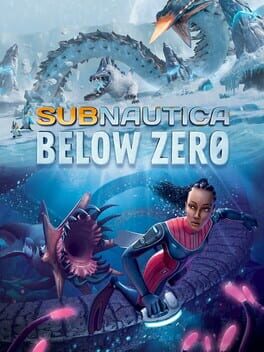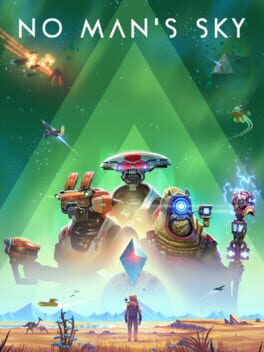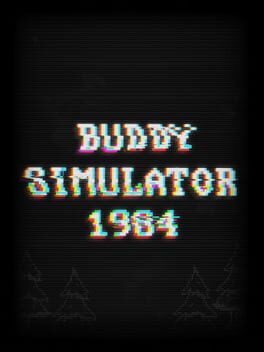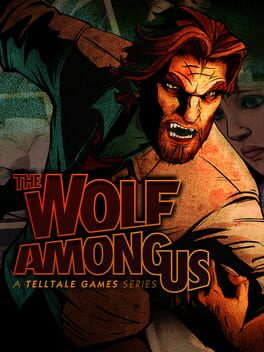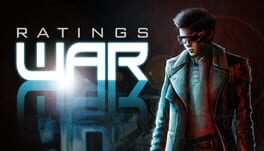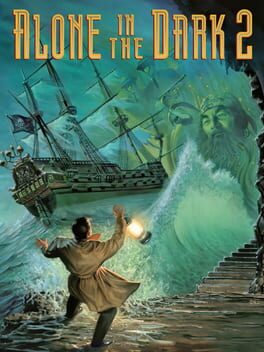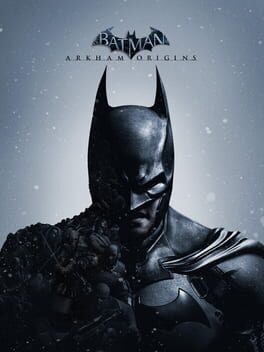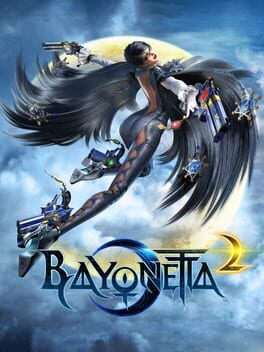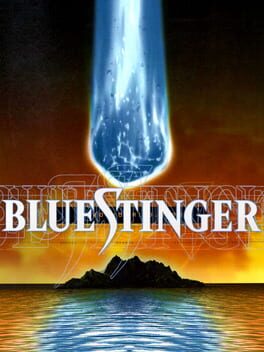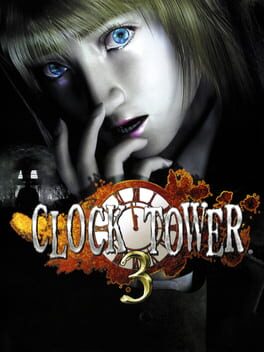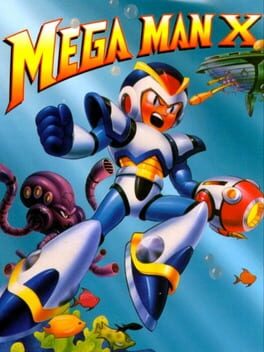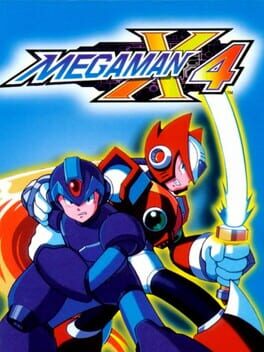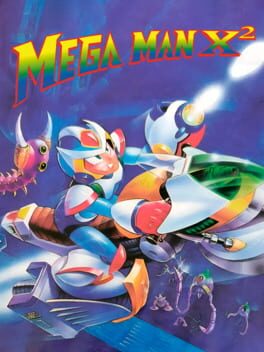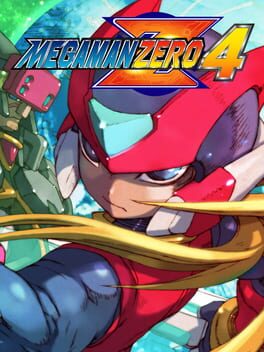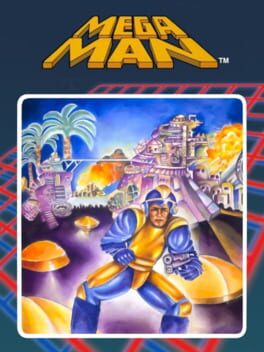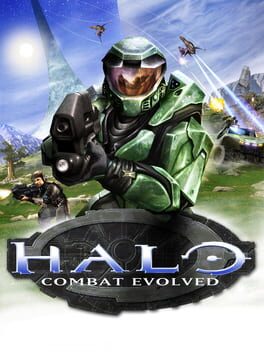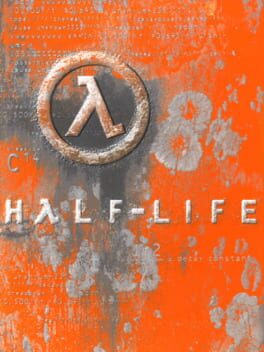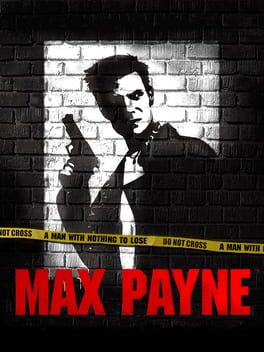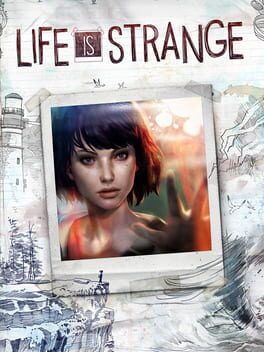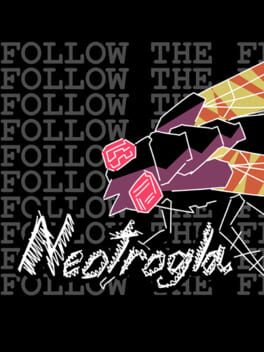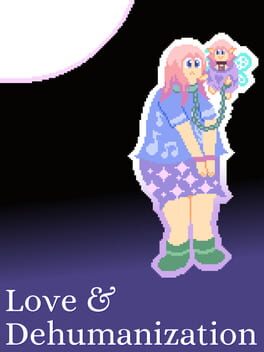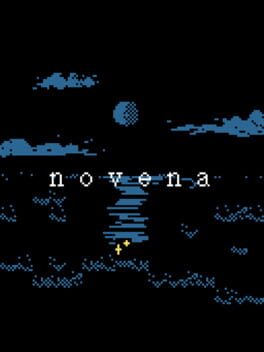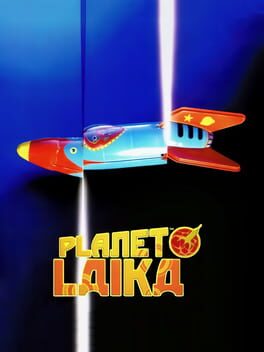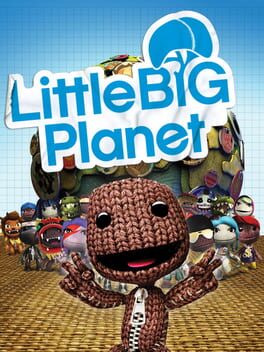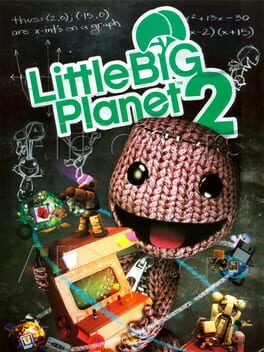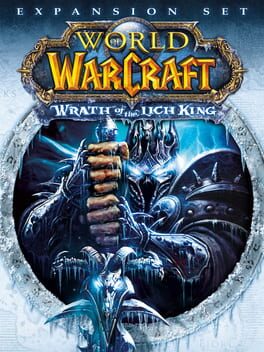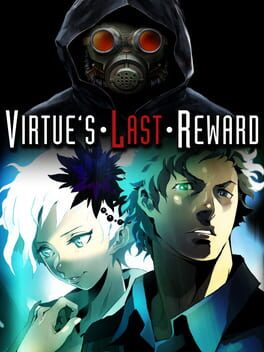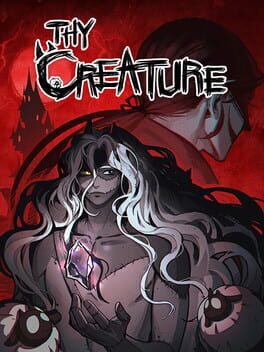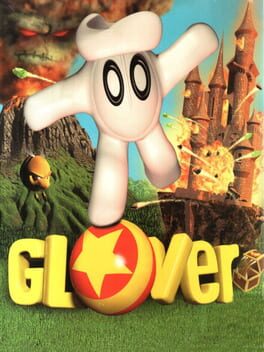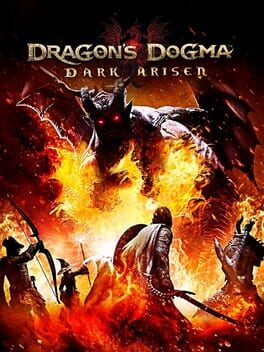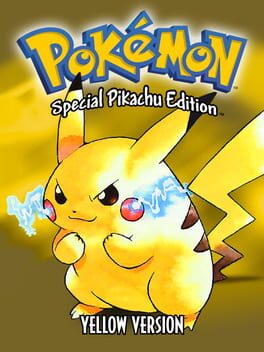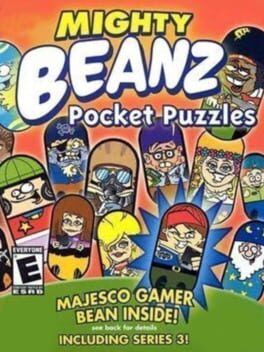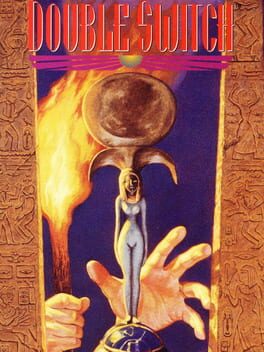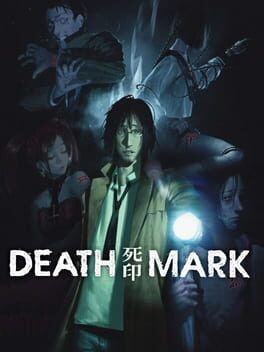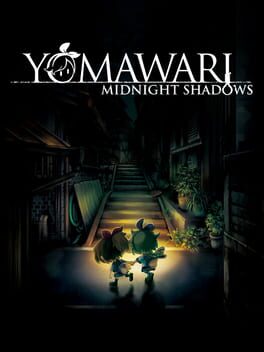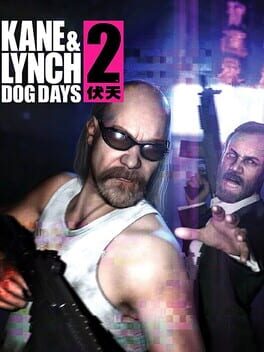radradradish
102 reviews liked by radradradish
Max Payne 3
2012
Before this review starts, I would like to preface that this is by no means an actual, in-depth critical review of Max Payne 3. I won’t be touching the story or gameplay AT ALL in this, so let that be warned. This is purely about how I feel about Max Payne 3’s portrayal of my region of Brazil and how it affected my enjoyment of it to the point where I just can’t really stand it and think it is one of the most racist video games ever made. I can’t wrap my head around the fact that Resident Evil 5 is frequently cited as a super racist video game when Max Payne 3 is literally right there and does the exact same things that game does!
The average person who played Max Payne 3 will probably not bother to do an inch of research on the country of Brazil, probably thinks Rio is the capital, and believes that it is an absolute warzone hellhole where people get shot on the street constantly. This is the kind of audience Rockstar was trying to appeal to with this game. I do not believe, even for a second, that they made this game out of respect for Brazil. They simply wanted a 3rd world country to throw their white American hero into so he could shoot and kill without a care in the world, because the 3rd world is so lawless, right? They wanted to portray their weird, twisted view of Brazil so much that they even went so far as to scan a thousand residents of the favela of Paraisópolis into the game, acting as backdrop NPCs in the chapters that do take place in the favela. You can kill actual residents of São Paulo in Max Payne 3, which is crazy once you consider how the rest of the game handles this stuff. You can sit there in your little house just outside Little Rock, Arkansas, and get your greasy hands on the controller and shoot at people who were probably paid less than a penny for their faces to be plastered onto enemies. It's the most pure depiction of the average 40-something-year-old American going to a country that doesn't belong to you and killing brown people for fun!
There is so much arrogance in Rockstar's approach to developing Max Payne 3. A huge inspiration for the game was the 2007 Brazilian movie “Tropa de Elite," which is very funny once you learn what that movie is about. It's like Rockstar saw that movie as just an average cool awesome shooter romp through a favela and not as a critique of Brazil’s problems and struggle with violence. I think taking a movie that presents a very thoughtful critique of violence and using it for their little American power fantasy video game is insanely disrespectful. But it’s not like it really matters to the audience for this game. The audience doesn’t know what "Tropa de Elite" is; most of them couldn’t even tell what language Brazil speaks, and most of them probably don’t even know Portuguese is a language. It appeals to the naive, the Americans, who think going to Brazil to shoot at some mixed-race thugs is the coolest thing in the world because they can live out their little soldier hero fantasy.
The depiction of lawful Brazilian citizens, who all seem to hate gringos and be aggressive on sight despite Brazil frequently being cited as one of the most friendly countries to foreigners, is an objectively wrong, offensive depiction. Brazilians do not hate gringos; I, being one myself and being friends with a lot of gringos and foreigners, can personally attest to this. I have been around a lot of São Paulo because I live fairly close to it and there are always gringos around, and no one minds, and in fact, most Brazilians really enjoy helping out gringos or foreigners in any way they can! Rockstar seems to have this weird, twisted idea that since it's a favela and not the clean, corporate building of the Brancos, the people are totally different. The people from the favelas are wonderful people, despite the bad hand most of them have been dealt in life: stuck in poverty, living in run-down buildings on top of other buildings, stacked up so high. They have a resilient spirit; they, to me, represent the Brazilian spirit more than any other group of people in this world, and I respect them deeply for it. I think choosing to depict these people as inherently hostile to Max, the American hero, is so disrespectful to them and their home and the culture they were raised around, and it paints a picture that is absolutely not true. I believe Rockstar chose to depict the favelas like that because it would sell. The depiction of the favelas as lawless wastelands with gangsters and thugs at every corner is the most pure evidence you could find of the ignorance of the average American writer. You can visit a country and study it, see how it is, then go home to your little flat in your little apartment and depict it in a way that would make sense to your audience, which is the American, the one you want to please because they at the end of the day give you money; the citizens of São Paulo don’t really matter in the end much at all, and their input was never needed.
Brazil already gets misrepresented by the world at large, and I am a firm believer that media can affect and alter reality and how people perceive things in significant ways. Rockstar seemed to be drawn in by the allure of Brazil that exists in the minds of only foreigners and not the actual experience of the average Brazilian. The funk, the favela, the scorching sun, the people, the beaches, the drinking, the soccer—everything that people stereotype Brazilians as is present in this game! I don’t feel proud saying this is THE game that takes place where I live, that this is THE game that is supposed to “represent” São Paulo. I personally struggled with my Brazilian identity for a long time because of certain notions and preconceptions people held and still hold against Brazilians, particularly online, which tends to get very very nasty and racist. And I cannot sit here and pretend like I am fine with the way these Americans wrote about my country and my people.
Even when you get to the real villains of the game, the Brazilian UFE and Victor Branco, the game never changes from its weird attitude towards Brazilians. Chapter 12 is literally named “The Great American Savior of the Poor,” and as ironic as Rockstar’s intent may have been while writing that, they characterize Max and Brazilians in such a way that that is actually the case! He stops the Comando Sombra, he stops the UFE, he stops political corruption, and he saves a bunch of favela citizens from getting their organs harvested. He, a white American man, really does become the savior of the poor through this game's absolutely naive and frankly stupidly racist writing. And the critique itself towards the Brazilian police and political world is absolutely shallow and warped. I mean, Victor Branco is kind of a silly caricature of a stereotypical corrupt Brazilian politician, but the game doesn’t really delve any deeper than that, and it frankly makes me quite sad. Just a few years after this game came out, Operation Car Wash started, and honestly, I wish this game had come out during that time frame so they could have developed that plot point further. But then I also worry they would’ve handled it in the worst way possible and made the most Brazilian right-wing propaganda piece video game of all time, and that thought alone sends shivers down my spine. Like Imagine in your head right now a game so right-wing Bolsonaro would probably use clips of it in his 2018 campaign. I already think the game is inherently right-leaning simply because of the way it handles a lot of the subject matter, and I honestly fear what a 2017 Max Payne 3 taking place in Brazil during the Temer era would look like...
If it seems like I have gotten emotional or angry while writing this, it is because I have! I do not live in the city of São Paulo proper; I live on the coast. But I have been to São Paulo quite often in my life due to a few of my relatives living there, and those relatives live in the parts that Max Payne 3 chose specifically to depict. It makes me sad that this is the product that was made; this is what Rockstar chose to depict of my family, my friends, and my country. To the people that live here, to the people that know and love people that live in the world Max Payne 3 chose to take place in, it is a very painful experience to go through again and again. São Paulo is really a beautiful state, and most will never ever get to experience it; only the people that have lived here would really understand how amazing and beautiful it truly can be. But to the average audience that loves Rockstar, all of this is alright and fine by them; they’re never going to feel offended, and they’re never going to have a problem with it. They’re never going to feel their blood pressure rise when the game says something so insanely racist you have to take a step back. They’re never going to wonder how their friends and family are viewed due to the negative connotations being from a favela already carried, made worse by a totally inept and ignorant development team. Because they don’t care. To the average American consumer, it is just another game set in a "shithole," a "warzone," where they get to escape their privileged realities and pretend they’re some sort of hero. Rockstar manages to reinforce every single negative stereotype about Brazil for these people. And they’re going to eat it up; they’ll believe it because they are inherently ignorant. It is a game made for Americans, not for the Brazilian people, and there is nothing more American than pretending to be a badass hero in some “shithole” where the only goal is to kill as many brown people as possible.
I have gone on a few tangents here and there, but I have stated my case. Max Payne 3 is a racist video game, plain and simple. It's not going to beat around the bush and pretend it's because Rockstar is doing it by accident because it honestly feels very deliberate. They had writers approve a lot of this stuff, and it baffles me that at no point a writer went and said how kind of messed up it all is. I will leave a single quote here that I feel perfectly illustrates what I mean by all of this:
“We’d half destroyed São Paulo’s most hallowed place of worship.” A stadium.
The average person who played Max Payne 3 will probably not bother to do an inch of research on the country of Brazil, probably thinks Rio is the capital, and believes that it is an absolute warzone hellhole where people get shot on the street constantly. This is the kind of audience Rockstar was trying to appeal to with this game. I do not believe, even for a second, that they made this game out of respect for Brazil. They simply wanted a 3rd world country to throw their white American hero into so he could shoot and kill without a care in the world, because the 3rd world is so lawless, right? They wanted to portray their weird, twisted view of Brazil so much that they even went so far as to scan a thousand residents of the favela of Paraisópolis into the game, acting as backdrop NPCs in the chapters that do take place in the favela. You can kill actual residents of São Paulo in Max Payne 3, which is crazy once you consider how the rest of the game handles this stuff. You can sit there in your little house just outside Little Rock, Arkansas, and get your greasy hands on the controller and shoot at people who were probably paid less than a penny for their faces to be plastered onto enemies. It's the most pure depiction of the average 40-something-year-old American going to a country that doesn't belong to you and killing brown people for fun!
There is so much arrogance in Rockstar's approach to developing Max Payne 3. A huge inspiration for the game was the 2007 Brazilian movie “Tropa de Elite," which is very funny once you learn what that movie is about. It's like Rockstar saw that movie as just an average cool awesome shooter romp through a favela and not as a critique of Brazil’s problems and struggle with violence. I think taking a movie that presents a very thoughtful critique of violence and using it for their little American power fantasy video game is insanely disrespectful. But it’s not like it really matters to the audience for this game. The audience doesn’t know what "Tropa de Elite" is; most of them couldn’t even tell what language Brazil speaks, and most of them probably don’t even know Portuguese is a language. It appeals to the naive, the Americans, who think going to Brazil to shoot at some mixed-race thugs is the coolest thing in the world because they can live out their little soldier hero fantasy.
The depiction of lawful Brazilian citizens, who all seem to hate gringos and be aggressive on sight despite Brazil frequently being cited as one of the most friendly countries to foreigners, is an objectively wrong, offensive depiction. Brazilians do not hate gringos; I, being one myself and being friends with a lot of gringos and foreigners, can personally attest to this. I have been around a lot of São Paulo because I live fairly close to it and there are always gringos around, and no one minds, and in fact, most Brazilians really enjoy helping out gringos or foreigners in any way they can! Rockstar seems to have this weird, twisted idea that since it's a favela and not the clean, corporate building of the Brancos, the people are totally different. The people from the favelas are wonderful people, despite the bad hand most of them have been dealt in life: stuck in poverty, living in run-down buildings on top of other buildings, stacked up so high. They have a resilient spirit; they, to me, represent the Brazilian spirit more than any other group of people in this world, and I respect them deeply for it. I think choosing to depict these people as inherently hostile to Max, the American hero, is so disrespectful to them and their home and the culture they were raised around, and it paints a picture that is absolutely not true. I believe Rockstar chose to depict the favelas like that because it would sell. The depiction of the favelas as lawless wastelands with gangsters and thugs at every corner is the most pure evidence you could find of the ignorance of the average American writer. You can visit a country and study it, see how it is, then go home to your little flat in your little apartment and depict it in a way that would make sense to your audience, which is the American, the one you want to please because they at the end of the day give you money; the citizens of São Paulo don’t really matter in the end much at all, and their input was never needed.
Brazil already gets misrepresented by the world at large, and I am a firm believer that media can affect and alter reality and how people perceive things in significant ways. Rockstar seemed to be drawn in by the allure of Brazil that exists in the minds of only foreigners and not the actual experience of the average Brazilian. The funk, the favela, the scorching sun, the people, the beaches, the drinking, the soccer—everything that people stereotype Brazilians as is present in this game! I don’t feel proud saying this is THE game that takes place where I live, that this is THE game that is supposed to “represent” São Paulo. I personally struggled with my Brazilian identity for a long time because of certain notions and preconceptions people held and still hold against Brazilians, particularly online, which tends to get very very nasty and racist. And I cannot sit here and pretend like I am fine with the way these Americans wrote about my country and my people.
Even when you get to the real villains of the game, the Brazilian UFE and Victor Branco, the game never changes from its weird attitude towards Brazilians. Chapter 12 is literally named “The Great American Savior of the Poor,” and as ironic as Rockstar’s intent may have been while writing that, they characterize Max and Brazilians in such a way that that is actually the case! He stops the Comando Sombra, he stops the UFE, he stops political corruption, and he saves a bunch of favela citizens from getting their organs harvested. He, a white American man, really does become the savior of the poor through this game's absolutely naive and frankly stupidly racist writing. And the critique itself towards the Brazilian police and political world is absolutely shallow and warped. I mean, Victor Branco is kind of a silly caricature of a stereotypical corrupt Brazilian politician, but the game doesn’t really delve any deeper than that, and it frankly makes me quite sad. Just a few years after this game came out, Operation Car Wash started, and honestly, I wish this game had come out during that time frame so they could have developed that plot point further. But then I also worry they would’ve handled it in the worst way possible and made the most Brazilian right-wing propaganda piece video game of all time, and that thought alone sends shivers down my spine. Like Imagine in your head right now a game so right-wing Bolsonaro would probably use clips of it in his 2018 campaign. I already think the game is inherently right-leaning simply because of the way it handles a lot of the subject matter, and I honestly fear what a 2017 Max Payne 3 taking place in Brazil during the Temer era would look like...
If it seems like I have gotten emotional or angry while writing this, it is because I have! I do not live in the city of São Paulo proper; I live on the coast. But I have been to São Paulo quite often in my life due to a few of my relatives living there, and those relatives live in the parts that Max Payne 3 chose specifically to depict. It makes me sad that this is the product that was made; this is what Rockstar chose to depict of my family, my friends, and my country. To the people that live here, to the people that know and love people that live in the world Max Payne 3 chose to take place in, it is a very painful experience to go through again and again. São Paulo is really a beautiful state, and most will never ever get to experience it; only the people that have lived here would really understand how amazing and beautiful it truly can be. But to the average audience that loves Rockstar, all of this is alright and fine by them; they’re never going to feel offended, and they’re never going to have a problem with it. They’re never going to feel their blood pressure rise when the game says something so insanely racist you have to take a step back. They’re never going to wonder how their friends and family are viewed due to the negative connotations being from a favela already carried, made worse by a totally inept and ignorant development team. Because they don’t care. To the average American consumer, it is just another game set in a "shithole," a "warzone," where they get to escape their privileged realities and pretend they’re some sort of hero. Rockstar manages to reinforce every single negative stereotype about Brazil for these people. And they’re going to eat it up; they’ll believe it because they are inherently ignorant. It is a game made for Americans, not for the Brazilian people, and there is nothing more American than pretending to be a badass hero in some “shithole” where the only goal is to kill as many brown people as possible.
I have gone on a few tangents here and there, but I have stated my case. Max Payne 3 is a racist video game, plain and simple. It's not going to beat around the bush and pretend it's because Rockstar is doing it by accident because it honestly feels very deliberate. They had writers approve a lot of this stuff, and it baffles me that at no point a writer went and said how kind of messed up it all is. I will leave a single quote here that I feel perfectly illustrates what I mean by all of this:
“We’d half destroyed São Paulo’s most hallowed place of worship.” A stadium.
The Oregon Trail
1971
Half-Century Challenge Series: https://www.backloggd.com/u/C_F/list/half-century-challenge/
HCC #2 = Oregon Trail (1971)
Anybody remember playing video games in your school's computer lab? I was a tech savvy kid who always finished work early, so I had quite a few things I would put on to pass the time. Showing off cheat codes to my classmates in flash games like Stick RPG or Swords & Sandals 2. The reactions when I entered a comma at the end of my character's name and clicked randomize made me feel so proud of tapping into the hidden knowledge of how to break some silly Newgrounds game. Putting a flash drive with SNES emulators inside the school's PC... I'll never forget the time my classmate saw me struggling with the button mashing minigame in Chrono Trigger. Mainly since it led to him mashing the spacebar so hard he finished it with plenty of time to spare while half the class stared at him due to the noise he was making. Hell, I even remember making a visual novel for my senior project. I wish I had saved it outside of class in hindsight, but what can you do?
Anyways, on one slow day my teacher let me play Oregon Trail after proclaiming it was an edutainment game I would enjoy. All I could wonder was how it would be possible to learn a lesson and play a game at the same time.
Needless to say I was in awe. It was like getting a crash course on money management, American history, and arithmetic all in one. At the time, it never occurred to me how silly the game was. I never stopped to think about how goofy the idea of going to sleep and getting SIX FUCKING OXEN stolen from me was. I never stopped to wonder if the prices actually made sense for the time period. Cus, frankly, none of that was too important to me. None of that is important to me right now.
To me, games are so much more than the graphics, the music, the text, the data occupying the screen. Oregon Trail is more than some silly edutainment game I played half a lifetime ago. It's a connection.
I can't remember my classmates' names. I can't remember my teacher's name. I can't easily Google "what school did I go to in 2010" or anything. I can easily Google Oregon Trail. Every year, our memory fades more and more. The digital footprint of Oregon Trail, however, hasn't faded.
I almost vividly remember naming my Oregon Trail party members after my classmates and my teacher. I recall wondering what the fuck dysentery was and being upset I let "my classmate" die. I know how accomplished I felt to have beaten the game in such a short timeframe. Every 4th of July, I run a simulation of this game with my friend group and save some screencaps. I like to think it helps somehow.
I could sit here and tell you about how Oregon Trail is the longest running game franchise. I could tell you how Oregon Trail started as a random teacher's indie game before becoming the most impactful edutainment game ever made.
But the truth is, none of that is important to me. My memories with this game are important to me. I don't even know if I can really rec this game unless you're a nerd like me who plays notable games academically. At least it's an hour long tops?
And as Alek Wek once said, the most beautiful things are not associated with money; they are memories and moments. If you don't celebrate those, they can pass you by. The creator of Oregon Trail said in an interview that even if he didn't get to buy his own private island from all the money Oregon Trail made, he doesn't care since he's still so happy a game he made in 10 days is still so celebrated. And that's just beautiful.
https://www.youtube.com/watch?v=8QbjlHeoLdc
Next time: Pong (1972)
HCC #2 = Oregon Trail (1971)
Anybody remember playing video games in your school's computer lab? I was a tech savvy kid who always finished work early, so I had quite a few things I would put on to pass the time. Showing off cheat codes to my classmates in flash games like Stick RPG or Swords & Sandals 2. The reactions when I entered a comma at the end of my character's name and clicked randomize made me feel so proud of tapping into the hidden knowledge of how to break some silly Newgrounds game. Putting a flash drive with SNES emulators inside the school's PC... I'll never forget the time my classmate saw me struggling with the button mashing minigame in Chrono Trigger. Mainly since it led to him mashing the spacebar so hard he finished it with plenty of time to spare while half the class stared at him due to the noise he was making. Hell, I even remember making a visual novel for my senior project. I wish I had saved it outside of class in hindsight, but what can you do?
Anyways, on one slow day my teacher let me play Oregon Trail after proclaiming it was an edutainment game I would enjoy. All I could wonder was how it would be possible to learn a lesson and play a game at the same time.
Needless to say I was in awe. It was like getting a crash course on money management, American history, and arithmetic all in one. At the time, it never occurred to me how silly the game was. I never stopped to think about how goofy the idea of going to sleep and getting SIX FUCKING OXEN stolen from me was. I never stopped to wonder if the prices actually made sense for the time period. Cus, frankly, none of that was too important to me. None of that is important to me right now.
To me, games are so much more than the graphics, the music, the text, the data occupying the screen. Oregon Trail is more than some silly edutainment game I played half a lifetime ago. It's a connection.
I can't remember my classmates' names. I can't remember my teacher's name. I can't easily Google "what school did I go to in 2010" or anything. I can easily Google Oregon Trail. Every year, our memory fades more and more. The digital footprint of Oregon Trail, however, hasn't faded.
I almost vividly remember naming my Oregon Trail party members after my classmates and my teacher. I recall wondering what the fuck dysentery was and being upset I let "my classmate" die. I know how accomplished I felt to have beaten the game in such a short timeframe. Every 4th of July, I run a simulation of this game with my friend group and save some screencaps. I like to think it helps somehow.
I could sit here and tell you about how Oregon Trail is the longest running game franchise. I could tell you how Oregon Trail started as a random teacher's indie game before becoming the most impactful edutainment game ever made.
But the truth is, none of that is important to me. My memories with this game are important to me. I don't even know if I can really rec this game unless you're a nerd like me who plays notable games academically. At least it's an hour long tops?
And as Alek Wek once said, the most beautiful things are not associated with money; they are memories and moments. If you don't celebrate those, they can pass you by. The creator of Oregon Trail said in an interview that even if he didn't get to buy his own private island from all the money Oregon Trail made, he doesn't care since he's still so happy a game he made in 10 days is still so celebrated. And that's just beautiful.
https://www.youtube.com/watch?v=8QbjlHeoLdc
Next time: Pong (1972)
Super Metroid
1994
While it hadn’t gotten as much love as other Nintendo franchises at this point, like with Mario, Zelda, Kirby, and others, the Metroid series was still considered to be one of their big IPs at the time, and had a bit of a reputation at that point. The original Metroid and Metroid II: Return of Samus, despite not reaching the same level of quality as future titles in the series, were still good games in their own right, and were a pretty good launch point for this series as a whole. Not to mention, they were pretty successful, selling 2.7 million copies and 1.7 million copies respectively, so naturally, a sequel was going to be made… but not right away. There would be somewhat of a gap in between releases, primarily because the devs were waiting for just the right time, the perfect time, to bring Samus back into the limelight once again. This perfect time would come in 1994, and with the help of Intelligent Systems, who had developed plenty of games with Nintendo before (including the original Metroid), they would then release the long-awaited next chapter in the Metroid saga, Super Metroid.
Unfortunately, it wouldn’t go onto sell as well as its predecessors, but it would go onto garner universal praise from fans, die-hard or otherwise, and critics alike, with it now considered to be not only one of, if not THE best Metroid game of all time, but also one of the greatest video games ever made. Many have sung its praises over the years in many ways, it would get plenty of mods later down the road supporting replayability, it would become a favorite amongst speedrunners, and it would help go onto establishing an entire sub-genre of video games as a whole. As for myself though, I wouldn’t jump onto the Super Metroid bandwagon for quite some time, despite watching plenty of videos about it that would praise the game and go into great detail about why it was considered a masterpiece. When I eventually did decide to give the game a fair shot, I immediately understood why, as it is an incredible game, and absolutely deserves the reputation it has garnered over the years. While it may not be my personal favorite Metroid game, it is clear when playing the game that the devs put plenty of love, detail, and care into this game, making it one of the best games you could ever play not only from this era, but from any era.
The story continues on from where Metroid II ended off, where Samus Aran, now with a baby Metroid in her possession, brings it to a team of scientists at the Ceres research station to conduct further study on the specimen, but shortly after she leaves, the station is attacked by Ridley, back in the flesh after his defeat in the original game, killing everyone inside and stealing the baby Metroid, and fleeing back to the planet Zebes, so it is up to Samus to travel to Zebes once again, get back the baby Metroid, and uncover what is really going on here. It is a fairly simple premise, one that is easy to understand for new players, but also complex enough to create intrigue for those that are wanting to learn more about this game and its universe, making it very pleasing to experience and ponder about.
The graphics are absolutely phenomenal, not only bringing Samus to the 16-bit era in the perfect way, but also creating plenty of iconic locations, enemy designs, and atmosphere that still holds up tremendously well almost 30 years later, the music is wonderful, creating a perfect balance of being moody, setting the tone for many of the environments you travel in, yet still being filled with plenty of life, while also being tense and action–packed when it needs to, the control is perfect, feeling like the perfect evolution for how Samus should control in one of these games, while giving plenty of new things to mess around with right from the get-go that give you more versatility than ever, and the gameplay is pretty similar to the last two titles in the series, but now it has been made to be a lot more exciting, approachable, and memorable.
The game is a 2D action-adventure game, where you take control of Samus Aran once again, go through the depths of the planet Zebes once again, this time with much more detail, life, and secrets to find, defeat plenty of creatures, big or small, that inhabit the planet and want you dead as you go deeper and deeper into the planet, gather plenty of upgrades to Samus’s arsenal to make her into the ultimate warrior, such as with health upgrades, beam power ups, or regular power ups that give you new abilities, and take on plenty of bosses, both new and old, that will provide a challenge to those unprepared for what is to come. It has all the same elements that the previous two games had, not really introducing anything that majorly different for the series at the time, but there is one thing that it does manage to do above all else: perfect the formula.
As I mentioned earlier, Samus is now more capable then she has ever been before, not only having the same basic abilities and powers that she could get from the previous game, but she is now also able to aim in eight separate directions, she can crouch, and she even now has a wall jump, where you can continuously scale up a wall if you press the right sequence of buttons, allowing you to ultimately make the game YOUR BITCH. It is the perfect way to naturally evolve not just Samus and her capabilities, but also how the game plays, because when compared to the original game and Metroid II, this is just perfect in every way. Not only that, but the arsenal of weapons that she can acquire throughout the game is just as helpful as before, with classics like the Missiles, the Morph Ball, the Hi-Jump boots, the Screw Attack, and the various beam powers making a return, and each of them are incredibly helpful in plenty of situations.
Not only that, but there is also a good amount of new power ups for you to mess around with in the game as you go about finding them. There’s the Speed Booster, which allows Samus to run extremely fast and make her an unstoppable bullet train, the Shine Spark, which allows you to fire yourself through hard structures while using the Speed Booster, the Grapple Beam, which can be used to latch onto certain surfaces and swing around all over the place to reach new areas or more goodies, and the X-Ray Scope, which allows you to scan nearby areas to see if you can find any hidden passageways, power ups, or otherwise. Most of these new additions would become staples in the series in the coming years, and all of them are extremely useful and wonderful to test out in plenty of locations… with the exception of the X-Ray Scope, which I barely used at all, but hey, it is there for newcomers, so that is good.
And speaking of newcomers, like I mentioned before, this game is much more approachable when compared to the previous two titles, not just in terms of what it provides the player, but also in terms of design. In the first two Metroid games, there was always the possibility of getting lost or confused while traveling through these corridors, because not only did you not have any way to track where you were in the game, but also because a lot of the hallways look almost identical to each other, meaning you could think you are in a whole new area, but instead are stuck back-tracking when you didn’t want to so that.
Thankfully, with Super Metroid, not only do you now have a map which can track where you have been, making it a lot easier to decide where you want to go next, but every single area in the game, big or small, now has a distinct look and design to it, making it so that you will always have new things to discover, and even if you haven’t fully explored one area due to a lack of tools needed to do so, you can always find your way back in order to do so later. With that being said though, even though you do have a map, it doesn’t automatically point out every single thing to you, encouraging you to explore around more and see where more items and secrets can be hidden, which is always a great thing to have when it comes to any video game.
One last admirable quality about Super Metroid that I really admire, especially when it comes to video games of this era, is in terms of its storytelling. Most games around this time either don’t give you too much story at all, or they are all saved for cutscenes and the instruction manual, which is fine on its own, but it doesn’t give you much opportunity to really connect with the game’s world as a whole. Super Metroid, however, manages to do this flawlessly, starting off with an intro sequence that doesn’t tell you everything you need to know, or about what happened in the previous two games, but they tell you enough to where you get ready to go and want to learn more. Even when you land on the planet of Zebes, you can tell that it’s gone through plenty of changes, with the first areas looking all desolate and destroyed, no doubt a result of your actions from the original game. However, after you get the Morph Ball, this beam of light shines on you from the corner of the room, and suddenly, all kinds of baddies are up and at 'em, ready to take you down, which is a really nice detail.
Everything else remains relatively normal and simple from there on out, until you end up fighting Ridley, where after you defeat him, you end up finding the capsule that the baby Metroid was sealed in… but it is now shattered, and the baby Metroid is gone. You have no clue what could’ve happened, so you end up going about the rest of your business, getting more items, fighting more guys, and breaking the game to your heart’s content, until you reach the final area of the game, where you descend down further into the core of Zebes, and that’s when the final events of the game start to kick off. Oh, and by the way, spoilers for the final act of the game are coming up, so if you haven’t played or seen through that part of the game yet (even though you have had 30 years to do so), then just skip to the final paragraph of the review.
As you enter this area, you notice that it is surprisingly… quiet. There isn’t that much going in with the environment, and the only enemies that you find in this place are Metroids and those weird ring things that shoot out from the walls. Eventually, you find more enemies later on, but they appear to be… drained of their life, disintegrating upon contact, leading you to suspect that something weird is going on here. You then find another one of these enemies, alive and well, seemingly impossible to kill as you try every single weapon on it, but nothing works. Before you can think of what to do next, all of a sudden, this GIGANTIC Metroid comes out of NOWHERE, and latches itself onto that creature, draining it of its energy, and probably scaring the shit out of whoever is playing the game at that point.
After it finishes off this creature, it then heads straight for you, starting to completely drain you of all your energy as well, with you being able to do anything about it, as you fidget around in an utter panic. However, before your health bar drops to zero, all of a sudden… it stops. It stops draining your health, and it detaches itself from you, letting out some cries, until ultimately fleeing the scene. It is then you realize that this giant Metroid that almost killed you was the baby Metroid that you got from SR388, and it had one HUGE growth spurt, but even after becoming the ruthless killer that all Metroids naturally are, it still cares deeply about Samus, and wishes to bring no more harm to her.
Once that is all over with, you once again go through the game like normal, finally reaching Mother Brain, back once again from the original game, right alongside a fight that seems like it was ripped straight from that game, with you needing to defeat her in the exact same way. However, when it seems like she is destroyed, she then rises up from her defeat once again, now rocking this brand new body. Naturally, you start to throw everything at her, but it doesn’t seem like anything is really doing all that much to her, as she fights back and then starts to charge up something. This then leads to her firing this gigantic rainbow laser beam of death at you several times, which not only starts draining away all of your health like crazy, but it also takes away all of your missiles and bombs too!
At this point, you are now stuck, unable to move, and getting continuously beat up by Mother Brain, wondering how the hell you are going to get out of this one. However, before Mother Brain can land the final blow with one more laser beam attack, the full-grown baby Metroid then suddenly barges in and starts draining Mother Brain of all her energy, causing her to start to stagger and cry out in a panic, until she is left petrified for a brief moment. The Metroid then goes towards you, latching onto you once again, but instead of draining your health again, it then starts to… heal you? No clue how the hell they are supposed to be doing that, but at this point, you’ll take it. But then, while the Metroid is starting to heal you, Mother Brain gets back up.
It then starts to fully attack the Metroid non-stop, causing it to grow weaker and changing to a much weaker shade of purple and yellow, until the Metroid then unlatches itself from you, and then goes in for one final attack. Unfortunately though, before it can land that final blow, Mother Brain gets the upper hand, killing the Metroid, and causing it to explode into dust. You may not have known him for long, but you are probably feeling pretty saddened and angry about Mother Brain killing your baby, but fear not, because from the ashes of the Metroid, you gain one final upgrade to your beam that is capable of killing Mother Brain: the Hyper Beam.
You then unload plenty of shots from your own rainbow laser, right into Mother Brain’s dumbass face, until it ultimately crumbles to the ground, ending your mission, and leading you to quickly escaping from the planet. This entire sequence of events, from where you find the destroyed capsule all the way up to when you kill Mother Brain, is executed flawlessly. It is such a simple sequence of events, but they are presented to the player so naturally, without any real pauses in the gameplay, allowing you to fully get absorbed in these moments, which make them all the more surprising, jarring, heart-breaking, and satisfying. Of course, you probably already knew about all this, and you may not think it is such a big deal, as did I when I went into this game, but even when I knew all of what was going to happen, it still made it so that those emotions were rushing through me by the end, and if a game manages to do that even when you already knew it was coming, then that deserves only the highest regards.
Overall, while it still isn’t my favorite game in the entire series, or even my favorite 2D Metroid for that matter, I can’t help but fully admit that Super Metroid, on its own, is almost completely flawless, giving a natural evolution for this series that excels it to new heights, and providing so much fun throughout all that it offers, whether it be through gameplay, presentation, story, or otherwise. I absolutely recommend it for anyone, those who are big fans of the Metroid series, or if you are someone that is wanting to get into the series yourself, because it is not only a perfect starting point for newcomers, but also a title that has held up masterfully after all this time, and it is clear why it is still so prevalent in plenty of gaming communities to this day. Although, I will say one thing, for those of you who are planning on playing this at some point… make sure to save the aliens. You may not know what I am talking about, but trust me, you will want to remember that, so that you won’t get shunned by your peers for doing something wrong.
Game #492
Unfortunately, it wouldn’t go onto sell as well as its predecessors, but it would go onto garner universal praise from fans, die-hard or otherwise, and critics alike, with it now considered to be not only one of, if not THE best Metroid game of all time, but also one of the greatest video games ever made. Many have sung its praises over the years in many ways, it would get plenty of mods later down the road supporting replayability, it would become a favorite amongst speedrunners, and it would help go onto establishing an entire sub-genre of video games as a whole. As for myself though, I wouldn’t jump onto the Super Metroid bandwagon for quite some time, despite watching plenty of videos about it that would praise the game and go into great detail about why it was considered a masterpiece. When I eventually did decide to give the game a fair shot, I immediately understood why, as it is an incredible game, and absolutely deserves the reputation it has garnered over the years. While it may not be my personal favorite Metroid game, it is clear when playing the game that the devs put plenty of love, detail, and care into this game, making it one of the best games you could ever play not only from this era, but from any era.
The story continues on from where Metroid II ended off, where Samus Aran, now with a baby Metroid in her possession, brings it to a team of scientists at the Ceres research station to conduct further study on the specimen, but shortly after she leaves, the station is attacked by Ridley, back in the flesh after his defeat in the original game, killing everyone inside and stealing the baby Metroid, and fleeing back to the planet Zebes, so it is up to Samus to travel to Zebes once again, get back the baby Metroid, and uncover what is really going on here. It is a fairly simple premise, one that is easy to understand for new players, but also complex enough to create intrigue for those that are wanting to learn more about this game and its universe, making it very pleasing to experience and ponder about.
The graphics are absolutely phenomenal, not only bringing Samus to the 16-bit era in the perfect way, but also creating plenty of iconic locations, enemy designs, and atmosphere that still holds up tremendously well almost 30 years later, the music is wonderful, creating a perfect balance of being moody, setting the tone for many of the environments you travel in, yet still being filled with plenty of life, while also being tense and action–packed when it needs to, the control is perfect, feeling like the perfect evolution for how Samus should control in one of these games, while giving plenty of new things to mess around with right from the get-go that give you more versatility than ever, and the gameplay is pretty similar to the last two titles in the series, but now it has been made to be a lot more exciting, approachable, and memorable.
The game is a 2D action-adventure game, where you take control of Samus Aran once again, go through the depths of the planet Zebes once again, this time with much more detail, life, and secrets to find, defeat plenty of creatures, big or small, that inhabit the planet and want you dead as you go deeper and deeper into the planet, gather plenty of upgrades to Samus’s arsenal to make her into the ultimate warrior, such as with health upgrades, beam power ups, or regular power ups that give you new abilities, and take on plenty of bosses, both new and old, that will provide a challenge to those unprepared for what is to come. It has all the same elements that the previous two games had, not really introducing anything that majorly different for the series at the time, but there is one thing that it does manage to do above all else: perfect the formula.
As I mentioned earlier, Samus is now more capable then she has ever been before, not only having the same basic abilities and powers that she could get from the previous game, but she is now also able to aim in eight separate directions, she can crouch, and she even now has a wall jump, where you can continuously scale up a wall if you press the right sequence of buttons, allowing you to ultimately make the game YOUR BITCH. It is the perfect way to naturally evolve not just Samus and her capabilities, but also how the game plays, because when compared to the original game and Metroid II, this is just perfect in every way. Not only that, but the arsenal of weapons that she can acquire throughout the game is just as helpful as before, with classics like the Missiles, the Morph Ball, the Hi-Jump boots, the Screw Attack, and the various beam powers making a return, and each of them are incredibly helpful in plenty of situations.
Not only that, but there is also a good amount of new power ups for you to mess around with in the game as you go about finding them. There’s the Speed Booster, which allows Samus to run extremely fast and make her an unstoppable bullet train, the Shine Spark, which allows you to fire yourself through hard structures while using the Speed Booster, the Grapple Beam, which can be used to latch onto certain surfaces and swing around all over the place to reach new areas or more goodies, and the X-Ray Scope, which allows you to scan nearby areas to see if you can find any hidden passageways, power ups, or otherwise. Most of these new additions would become staples in the series in the coming years, and all of them are extremely useful and wonderful to test out in plenty of locations… with the exception of the X-Ray Scope, which I barely used at all, but hey, it is there for newcomers, so that is good.
And speaking of newcomers, like I mentioned before, this game is much more approachable when compared to the previous two titles, not just in terms of what it provides the player, but also in terms of design. In the first two Metroid games, there was always the possibility of getting lost or confused while traveling through these corridors, because not only did you not have any way to track where you were in the game, but also because a lot of the hallways look almost identical to each other, meaning you could think you are in a whole new area, but instead are stuck back-tracking when you didn’t want to so that.
Thankfully, with Super Metroid, not only do you now have a map which can track where you have been, making it a lot easier to decide where you want to go next, but every single area in the game, big or small, now has a distinct look and design to it, making it so that you will always have new things to discover, and even if you haven’t fully explored one area due to a lack of tools needed to do so, you can always find your way back in order to do so later. With that being said though, even though you do have a map, it doesn’t automatically point out every single thing to you, encouraging you to explore around more and see where more items and secrets can be hidden, which is always a great thing to have when it comes to any video game.
One last admirable quality about Super Metroid that I really admire, especially when it comes to video games of this era, is in terms of its storytelling. Most games around this time either don’t give you too much story at all, or they are all saved for cutscenes and the instruction manual, which is fine on its own, but it doesn’t give you much opportunity to really connect with the game’s world as a whole. Super Metroid, however, manages to do this flawlessly, starting off with an intro sequence that doesn’t tell you everything you need to know, or about what happened in the previous two games, but they tell you enough to where you get ready to go and want to learn more. Even when you land on the planet of Zebes, you can tell that it’s gone through plenty of changes, with the first areas looking all desolate and destroyed, no doubt a result of your actions from the original game. However, after you get the Morph Ball, this beam of light shines on you from the corner of the room, and suddenly, all kinds of baddies are up and at 'em, ready to take you down, which is a really nice detail.
Everything else remains relatively normal and simple from there on out, until you end up fighting Ridley, where after you defeat him, you end up finding the capsule that the baby Metroid was sealed in… but it is now shattered, and the baby Metroid is gone. You have no clue what could’ve happened, so you end up going about the rest of your business, getting more items, fighting more guys, and breaking the game to your heart’s content, until you reach the final area of the game, where you descend down further into the core of Zebes, and that’s when the final events of the game start to kick off. Oh, and by the way, spoilers for the final act of the game are coming up, so if you haven’t played or seen through that part of the game yet (even though you have had 30 years to do so), then just skip to the final paragraph of the review.
As you enter this area, you notice that it is surprisingly… quiet. There isn’t that much going in with the environment, and the only enemies that you find in this place are Metroids and those weird ring things that shoot out from the walls. Eventually, you find more enemies later on, but they appear to be… drained of their life, disintegrating upon contact, leading you to suspect that something weird is going on here. You then find another one of these enemies, alive and well, seemingly impossible to kill as you try every single weapon on it, but nothing works. Before you can think of what to do next, all of a sudden, this GIGANTIC Metroid comes out of NOWHERE, and latches itself onto that creature, draining it of its energy, and probably scaring the shit out of whoever is playing the game at that point.
After it finishes off this creature, it then heads straight for you, starting to completely drain you of all your energy as well, with you being able to do anything about it, as you fidget around in an utter panic. However, before your health bar drops to zero, all of a sudden… it stops. It stops draining your health, and it detaches itself from you, letting out some cries, until ultimately fleeing the scene. It is then you realize that this giant Metroid that almost killed you was the baby Metroid that you got from SR388, and it had one HUGE growth spurt, but even after becoming the ruthless killer that all Metroids naturally are, it still cares deeply about Samus, and wishes to bring no more harm to her.
Once that is all over with, you once again go through the game like normal, finally reaching Mother Brain, back once again from the original game, right alongside a fight that seems like it was ripped straight from that game, with you needing to defeat her in the exact same way. However, when it seems like she is destroyed, she then rises up from her defeat once again, now rocking this brand new body. Naturally, you start to throw everything at her, but it doesn’t seem like anything is really doing all that much to her, as she fights back and then starts to charge up something. This then leads to her firing this gigantic rainbow laser beam of death at you several times, which not only starts draining away all of your health like crazy, but it also takes away all of your missiles and bombs too!
At this point, you are now stuck, unable to move, and getting continuously beat up by Mother Brain, wondering how the hell you are going to get out of this one. However, before Mother Brain can land the final blow with one more laser beam attack, the full-grown baby Metroid then suddenly barges in and starts draining Mother Brain of all her energy, causing her to start to stagger and cry out in a panic, until she is left petrified for a brief moment. The Metroid then goes towards you, latching onto you once again, but instead of draining your health again, it then starts to… heal you? No clue how the hell they are supposed to be doing that, but at this point, you’ll take it. But then, while the Metroid is starting to heal you, Mother Brain gets back up.
It then starts to fully attack the Metroid non-stop, causing it to grow weaker and changing to a much weaker shade of purple and yellow, until the Metroid then unlatches itself from you, and then goes in for one final attack. Unfortunately though, before it can land that final blow, Mother Brain gets the upper hand, killing the Metroid, and causing it to explode into dust. You may not have known him for long, but you are probably feeling pretty saddened and angry about Mother Brain killing your baby, but fear not, because from the ashes of the Metroid, you gain one final upgrade to your beam that is capable of killing Mother Brain: the Hyper Beam.
You then unload plenty of shots from your own rainbow laser, right into Mother Brain’s dumbass face, until it ultimately crumbles to the ground, ending your mission, and leading you to quickly escaping from the planet. This entire sequence of events, from where you find the destroyed capsule all the way up to when you kill Mother Brain, is executed flawlessly. It is such a simple sequence of events, but they are presented to the player so naturally, without any real pauses in the gameplay, allowing you to fully get absorbed in these moments, which make them all the more surprising, jarring, heart-breaking, and satisfying. Of course, you probably already knew about all this, and you may not think it is such a big deal, as did I when I went into this game, but even when I knew all of what was going to happen, it still made it so that those emotions were rushing through me by the end, and if a game manages to do that even when you already knew it was coming, then that deserves only the highest regards.
Overall, while it still isn’t my favorite game in the entire series, or even my favorite 2D Metroid for that matter, I can’t help but fully admit that Super Metroid, on its own, is almost completely flawless, giving a natural evolution for this series that excels it to new heights, and providing so much fun throughout all that it offers, whether it be through gameplay, presentation, story, or otherwise. I absolutely recommend it for anyone, those who are big fans of the Metroid series, or if you are someone that is wanting to get into the series yourself, because it is not only a perfect starting point for newcomers, but also a title that has held up masterfully after all this time, and it is clear why it is still so prevalent in plenty of gaming communities to this day. Although, I will say one thing, for those of you who are planning on playing this at some point… make sure to save the aliens. You may not know what I am talking about, but trust me, you will want to remember that, so that you won’t get shunned by your peers for doing something wrong.
Game #492
Super Metroid
1994
What is the best game?
What could the best game even be? It's hard to think of, isn't it? Maybe you would want good mechanics? A gripping story with very well-written and likeable characters? Lush environments with an atmospheric soundtrack that drags you straight into it's universe? There's many more you could want that would be more tailored to your personal tastes, which at that point your best game becomes my mediocre game and vice-versa. Arguments and debate about influence are often used as sticks of measurement as to what the best game possibly is, but influence is something that can be lost in time like many other things in life. After all, nothing is truly original, and would it be fair to give an award to one who was simply....first? I'm not entirely sure on that myself.
Metroid on NES was different from the other games I had played on that system, where as I played other stuff like Super Mario Bros. or Duck Hunt for childish entertainment, I felt a much different array of emotions. I was scared, I was curious, I was confused, and I was intrigued. It was due to this, and my sudden discovery that I enjoyed music coming from a little electronic piece of equipment, that Metroid was something I couldn't really forget, nor would I not find it's ambition to be truly commendable for such an early title. I liked it, but it wasn't my favorite NES game. Samus would notably spend a long ways away from my personal gaming timeline, Metroid II just being that Super Game Boy box was again my only memory, and in Super Smash Bros on Nintendo 64 I would play as Samus wondering where she's been this whole time, being reminded of her existence as I played as her, because she just seemed cool. She was cool, but I noticed something when I would look at her character profile in there....
Super. Metroid.
What is that? In 2023 it might be a bit hard to believe, but back then I did not have internet, or even cable. The only games that were out on Super Nintendo to my knowledge were just whatever was at the local Hollywood Video and such. Maybe I saw Super Metroid at Toys r' Us and just never registered it? Who's to say? One thing is for sure though, at one point I started getting into gaming magazines, and my dad eventually had a cable package with G4 among it's listings. It was in places such as these where I would hear the combination of the words "Super" and "Metroid" a lot. I was already interested, but in these same pieces of media, many would cite Super Metroid as "one of the best games of all time" and other such words of grandeur. It knocked me off my feet to hear about it or even see footage of it, Samus was in...the best game? I... wasn't there for it.
For years, it would be a bit of a white whale of gaming for me, especially after having enjoyed games that renewed my interest in the meantime such as Zero Mission and the Prime games. I had played pretty much every major release that came about on the SNES too...
Super Mario World? Of course.
Donkey Kong Country? Was my jam.
Link to the Past? Yeah, I played it at a friend's house.
Super Metroid? Wha-what?
It wouldn't be until I started browsing GameFAQs where I would eventually learn of this thing called "emulators". What are those? One google search later, I would find it... a program that would help this penniless child play a game they had stuck in the back of their mind for what seemed like a decade. It was during a time where emulation was a bit dodgy, certain things would look off and sounds could come out pretty warbly. Back then though, we were just happy to have something work at full speed. I was thankful enough just to see that famous intro, albeit with German subtitles attached to it. I couldn't believe it, on my family's kitchen computer I was about to play it, the best game...
It seems our little friend from our adventure on SR388 has been kidnapped by familiar foes, those we hadn't seen since they were but adorable 8-bit caricatures. They have rebuilt their base, and have grown far more fearsome. It's time to visit Zebes again, our old stomping ground. We trek across familiar landscapes, recalling the memory of escaping during the countdown of the original destruction of Mother Brain and find our morph ball....right where it was last time. All too familiar, until we are spotted and suddenly we find Ridley's henchmen swarming the innards of Old Tourian. This Zebes is different, it's been expanded and they are much more prepared for us this time it seems, and Kraid has gotten.....larger.
....but we were ready, for we are SUPER Metroid!
I always thought it would be seen as odd to have nostalgia for an emulator. It's not a real system, it's a fake, a phony. A shoddy imitation of what was my little grey and purple friend I had next to my little cable-less hand-me-down TV in my bedroom. To top it all off, there is no reason to ever use it anymore, it is obsolete and has been for some time now. It's existence means nothing anymore, but it lent me a sudden helpful hand and let me experience games that I had missed out on...and allowed me to finally revisit old favorites during a time it felt impossible. Oh, Star Fox how I had missed you so. It's difficult to believe they were once so guarded from young online eyes, and now they are commonplace. It's hard for me to imagine a world without them...a world where those younger than me wouldn't be able to easily experience that of which I had grown up with.
Thank you for your time ZSNES my old chum...and thank you Nintendo for making this apparently behind my back, and thank you Zeric, maker of this map on GameFAQs.
That leads us back to the question I asked from the beginning, what is the best game? Is Super Metroid the best game? Well my friend, I've played many a "best game". Many have not survived my trials, whether it was due to factors like "I didn't care for the thing" or a simple "I just don't play well with RPGs I'm afraid", but... Super Metroid has legs. It's a horse in this race of highly-acclaimed classic titles that I would get behind. It walks that aisle, and styles and profiles. Upon finishing my return to this game that I played very much legally as a youngling, I found myself playing again right away, and my entertainment somehow doubled as I was utilizing wall jumps to find alternate quicker paths to upgrades and energy tanks. It's a rare breed of game that somehow gets better the more you play it, just like a true Metroid adventure. What was once a clunky feeling is now just second nature, no longer do I care about the controls or Samus' physics of actually feeling like a person in a space suit jumping around on an alien planet. It is all just second nature, and now I am Samus, and I fuckin' rule.
The high I get from seeing that small amount of inventory I start with getting larger, and eventually taking up all that space on the top of the screen? Unfathomable.
Imagine making something that was so good that developers didn't want to even follow up such a game. That begs the question, could you in fact make a better Metroid? What is the next step for the series then? If Sakamoto could not imagine a way to utilize the Nintendo 64's controller, then what hope is there for the Dolphin console? There is maybe one way...how about, now bear with me on this...two fantastic games, at the same time. Would that be sufficient? Hrmph, unlikely that such a thing would be done. Regardless, it seems we would need to wait a while to go on another adventure with our favorite bounty hunter. I suppose another round of matches with the boys would be okay in the meantime. Until next time Samus, take care.
See you next mission.
Save the animals.
What could the best game even be? It's hard to think of, isn't it? Maybe you would want good mechanics? A gripping story with very well-written and likeable characters? Lush environments with an atmospheric soundtrack that drags you straight into it's universe? There's many more you could want that would be more tailored to your personal tastes, which at that point your best game becomes my mediocre game and vice-versa. Arguments and debate about influence are often used as sticks of measurement as to what the best game possibly is, but influence is something that can be lost in time like many other things in life. After all, nothing is truly original, and would it be fair to give an award to one who was simply....first? I'm not entirely sure on that myself.
Metroid on NES was different from the other games I had played on that system, where as I played other stuff like Super Mario Bros. or Duck Hunt for childish entertainment, I felt a much different array of emotions. I was scared, I was curious, I was confused, and I was intrigued. It was due to this, and my sudden discovery that I enjoyed music coming from a little electronic piece of equipment, that Metroid was something I couldn't really forget, nor would I not find it's ambition to be truly commendable for such an early title. I liked it, but it wasn't my favorite NES game. Samus would notably spend a long ways away from my personal gaming timeline, Metroid II just being that Super Game Boy box was again my only memory, and in Super Smash Bros on Nintendo 64 I would play as Samus wondering where she's been this whole time, being reminded of her existence as I played as her, because she just seemed cool. She was cool, but I noticed something when I would look at her character profile in there....
Super. Metroid.
What is that? In 2023 it might be a bit hard to believe, but back then I did not have internet, or even cable. The only games that were out on Super Nintendo to my knowledge were just whatever was at the local Hollywood Video and such. Maybe I saw Super Metroid at Toys r' Us and just never registered it? Who's to say? One thing is for sure though, at one point I started getting into gaming magazines, and my dad eventually had a cable package with G4 among it's listings. It was in places such as these where I would hear the combination of the words "Super" and "Metroid" a lot. I was already interested, but in these same pieces of media, many would cite Super Metroid as "one of the best games of all time" and other such words of grandeur. It knocked me off my feet to hear about it or even see footage of it, Samus was in...the best game? I... wasn't there for it.
For years, it would be a bit of a white whale of gaming for me, especially after having enjoyed games that renewed my interest in the meantime such as Zero Mission and the Prime games. I had played pretty much every major release that came about on the SNES too...
Super Mario World? Of course.
Donkey Kong Country? Was my jam.
Link to the Past? Yeah, I played it at a friend's house.
Super Metroid? Wha-what?
It wouldn't be until I started browsing GameFAQs where I would eventually learn of this thing called "emulators". What are those? One google search later, I would find it... a program that would help this penniless child play a game they had stuck in the back of their mind for what seemed like a decade. It was during a time where emulation was a bit dodgy, certain things would look off and sounds could come out pretty warbly. Back then though, we were just happy to have something work at full speed. I was thankful enough just to see that famous intro, albeit with German subtitles attached to it. I couldn't believe it, on my family's kitchen computer I was about to play it, the best game...
It seems our little friend from our adventure on SR388 has been kidnapped by familiar foes, those we hadn't seen since they were but adorable 8-bit caricatures. They have rebuilt their base, and have grown far more fearsome. It's time to visit Zebes again, our old stomping ground. We trek across familiar landscapes, recalling the memory of escaping during the countdown of the original destruction of Mother Brain and find our morph ball....right where it was last time. All too familiar, until we are spotted and suddenly we find Ridley's henchmen swarming the innards of Old Tourian. This Zebes is different, it's been expanded and they are much more prepared for us this time it seems, and Kraid has gotten.....larger.
....but we were ready, for we are SUPER Metroid!
I always thought it would be seen as odd to have nostalgia for an emulator. It's not a real system, it's a fake, a phony. A shoddy imitation of what was my little grey and purple friend I had next to my little cable-less hand-me-down TV in my bedroom. To top it all off, there is no reason to ever use it anymore, it is obsolete and has been for some time now. It's existence means nothing anymore, but it lent me a sudden helpful hand and let me experience games that I had missed out on...and allowed me to finally revisit old favorites during a time it felt impossible. Oh, Star Fox how I had missed you so. It's difficult to believe they were once so guarded from young online eyes, and now they are commonplace. It's hard for me to imagine a world without them...a world where those younger than me wouldn't be able to easily experience that of which I had grown up with.
Thank you for your time ZSNES my old chum...and thank you Nintendo for making this apparently behind my back, and thank you Zeric, maker of this map on GameFAQs.
That leads us back to the question I asked from the beginning, what is the best game? Is Super Metroid the best game? Well my friend, I've played many a "best game". Many have not survived my trials, whether it was due to factors like "I didn't care for the thing" or a simple "I just don't play well with RPGs I'm afraid", but... Super Metroid has legs. It's a horse in this race of highly-acclaimed classic titles that I would get behind. It walks that aisle, and styles and profiles. Upon finishing my return to this game that I played very much legally as a youngling, I found myself playing again right away, and my entertainment somehow doubled as I was utilizing wall jumps to find alternate quicker paths to upgrades and energy tanks. It's a rare breed of game that somehow gets better the more you play it, just like a true Metroid adventure. What was once a clunky feeling is now just second nature, no longer do I care about the controls or Samus' physics of actually feeling like a person in a space suit jumping around on an alien planet. It is all just second nature, and now I am Samus, and I fuckin' rule.
The high I get from seeing that small amount of inventory I start with getting larger, and eventually taking up all that space on the top of the screen? Unfathomable.
Imagine making something that was so good that developers didn't want to even follow up such a game. That begs the question, could you in fact make a better Metroid? What is the next step for the series then? If Sakamoto could not imagine a way to utilize the Nintendo 64's controller, then what hope is there for the Dolphin console? There is maybe one way...how about, now bear with me on this...two fantastic games, at the same time. Would that be sufficient? Hrmph, unlikely that such a thing would be done. Regardless, it seems we would need to wait a while to go on another adventure with our favorite bounty hunter. I suppose another round of matches with the boys would be okay in the meantime. Until next time Samus, take care.
See you next mission.
Save the animals.
Super Metroid
1994
Widely regarded as the benchmark of the genre, Super Metroid offers an incomparable lesson in level design. The exceptional vitality of this genre today sometimes forgets the golden rules, which allow to get the best out of Metroidvania. At first glance, Zebes is finely designed, so that each of the zones is interconnected, which limits the too tiring and repetitive back and forth, but the real strength of the title is to give the player the ability to accelerate the pace, even without having picked up any objects: mastering the wall-jump from the beginning of the game allows you to pass through advanced zones very quickly, giving the title a real replayability. Thus, many passages are open to the most adventurous and gifted, proving that the science of a Metroidvania lies in the emergent gameplay more than in the backtracking. Beyond this essential aspect, the title amazes with its fabulous graphic and musical score. Everything responds very well and it is difficult to find frustrating moments. One might regret the difficulty in switching between missiles and different objects, but the SNES controller requires it. Super Metroid is, without a shadow of a doubt, a shining star in the Nintendo sky.
Highnoon
1970
(Part 1 of the Half Century Challenge, created by C_F. You can read their first review here)
For today’s review, I wanted to take you all back, and I mean WAY back, all the way to 1970, when the Apollo 13 launched into orbit, the US was given the “gift” of PBS, and a band nobody knows of known as The Beatles would break up, with all of the members going on to doing their own thing. Yes, it was a magical time in history, one full of many ups, downs, and surprising developments for the future, lacking the bullshit we face now on a day-to-day basis, and there were plenty of things for people to do and experience, even involving the world of video games. These were a rare breed around this time, certainly nowhere near as universally known and praised like they are today, and none of these titles could ever come to match the quality of what has managed to come out since, but every once in a while, it is nice to take a look back at some of the most primitive ages of video games, seeing what developers could get away with at the time and use to make a simple, yet very memorable experience. This can be seen with some games such as with today’s example, Highnoon.
In general, I’m not really one who is too into text-based adventure games. Not to say that I have anything against them, but whenever I go to play any video game, I typically like to have… you know, SOMETHING to look at rather than just a wall of text, hence why I have only played, like, one or two of them throughout my entire life. I have wanted to check out some more of them though, as there are quite a lot of them, and there has to be some special elements they bring to the table that most other games couldn’t, otherwise why would they have persisted for so long. So, I decided to pick this one, which I had never played or heard of before, and based on my experience, I would say that I had a good time with it. You definitely aren’t gonna get much more then what is initially presented to you, but for being one of the earliest text-based adventure games, it manages to do its job well, while also adding enough charm to make it an enjoyable title to mess with for around 10 minutes or so.
One of the most appealing parts of this game, as well as any game made in a similar manner to this, is the fact that, for the most part, your imagination is the key tool to helping you paint the scenario laid out in front of you. You have already been spoiled enough with all of your fancy-schmancy new video games that have GRAPHICS and SOUND and CONTROL, BLEH! Who needs that shit, anyway?! All you need to have a grand ol’ time is just a bunch of text telling you what is going on, and you can just form the scenario around in your head. It’s almost like reading a book, except this has way more interactivity then a book, and you can make your own adventure out of it, rather than just simply reaching the same, predetermined conclusion every time.
But of course though, you gotta have a basic set-up to get you moving on the road ahead, and the set-up for this game is simple: it’s 1889, and you have been challenged to have a showdown in the Allegheny Mountains, facing the nefarious Black Bart, who will make sure that you end up as a dead man by the end of the day. You then meet up on a deserted road, and it is up to you to get the upper hand on Black Bart by moving forward, using your trusty pistol at precisely the right time, and to hope that luck is on your side so that Black Bart doesn’t end up taking you down and continuing his reign of terror. It’s a premise we have all seen and heard of before, but now, instead of watching it play out in front of you, or possibly even pretend-playing this scenario out with friends, you are now in the line yourself, and you have to take out your computer opponent before it is too late.
From there, you have very limited options for what you can do next, but they are enough to get the job done. All you can do is move forward, fire your gun, jump to the side for cover, give up, run away like a little bitch, or just do nothing at all, with each of these commands being assigned to specific numbers on the keyboard. You can then go about inputting these numbers one by one, seeing what the program does in response to this, and then continuing on from there. A lot of it is, obviously, randomly generated, as you don’t know what will happen at any time, or whether or not Black Bart will shoot or not, or even if the shots will hit you, but there is also a bit of strategy that comes into play, as whatever move you end up making at specific times could be the difference between life or death, so it is always wise to consider your next movement and choose wisely, which not only creates some pretty exciting tension, but also a good ol’ helping of satisfaction when your next move turns out to be just what you needed.
Aside from the main premise and how the game works, a lot of the appeal from this game can also be seen in the way that the game not only describes what events play out, but also how it reacts to your moves. While it mostly types things out in the way that you would expect it to, a lot of the time whenever something happens, or whenever you do anything specifically, it will throw in a snappy or snarky comment to emphasize what happened, such as “Good idea there”, or “You aren’t gonna get too far by doing that.” There was one part in the game that really stuck out to me and made me laugh, which was when I ended up getting killed by Black Bart, and how the game chose to describe what happened, where it basically said “Black Bart fires at you, landing a bullet right in your back, and then he fires again, with him shooting you right in the ass. You aren’t gonna be resting peacefully after that.” I dunno, seeing something like that in a game that is this old feels oddly refreshing, and it makes the game much more memorable as a result.
However, with all that being said, I still can’t say this game is anything more than just good because of how limited it is. It is a text-based adventure game after all, so there is only so much you can get out of it, with just one scenario to go through and the several outcomes you can get out of it, mainly either “you win” or “you die”. It is definitely only for the crowd of gamers like myself who has the love and patience for these kinds of games, but for those of you who prefer a little more interactivity, playtime, and, y’know, things to look at in your games, then this is definitely gonna be one of the last things that you ever end up deciding to check out for yourself. That doesn’t lower the game’s quality, mind you, it just affects how approachable it is in 2024.
Overall, despite being very basic and offering little more than the base concept, Highnoon is both very impressive and very charming for a game that came out back in 1970, providing you with a simple, yet descriptive scenario that you can paint in your head and have fun with, plenty of options to choose from to change the course of the game in however way you’d like, and giving off enough charm to where it feels like it stands on its own compared to what very little else was on the market at that time. I would recommend it for those who are a fan of these kinds of text-based adventure games, because while it may not give you that much to do, it is still a neat example of where these kinds of games were around that point, and it is fun to mess around with even over 50 years later. And for those of you who actually sat here and read all of what I just typed about a text-based adventure game from 1970, thanks for sticking it out to the end, as writing this one was much harder than you think it would be. Also, go check out C_F’s first review up there as well. Tell them that Mega sent ya.
Game #565
For today’s review, I wanted to take you all back, and I mean WAY back, all the way to 1970, when the Apollo 13 launched into orbit, the US was given the “gift” of PBS, and a band nobody knows of known as The Beatles would break up, with all of the members going on to doing their own thing. Yes, it was a magical time in history, one full of many ups, downs, and surprising developments for the future, lacking the bullshit we face now on a day-to-day basis, and there were plenty of things for people to do and experience, even involving the world of video games. These were a rare breed around this time, certainly nowhere near as universally known and praised like they are today, and none of these titles could ever come to match the quality of what has managed to come out since, but every once in a while, it is nice to take a look back at some of the most primitive ages of video games, seeing what developers could get away with at the time and use to make a simple, yet very memorable experience. This can be seen with some games such as with today’s example, Highnoon.
In general, I’m not really one who is too into text-based adventure games. Not to say that I have anything against them, but whenever I go to play any video game, I typically like to have… you know, SOMETHING to look at rather than just a wall of text, hence why I have only played, like, one or two of them throughout my entire life. I have wanted to check out some more of them though, as there are quite a lot of them, and there has to be some special elements they bring to the table that most other games couldn’t, otherwise why would they have persisted for so long. So, I decided to pick this one, which I had never played or heard of before, and based on my experience, I would say that I had a good time with it. You definitely aren’t gonna get much more then what is initially presented to you, but for being one of the earliest text-based adventure games, it manages to do its job well, while also adding enough charm to make it an enjoyable title to mess with for around 10 minutes or so.
One of the most appealing parts of this game, as well as any game made in a similar manner to this, is the fact that, for the most part, your imagination is the key tool to helping you paint the scenario laid out in front of you. You have already been spoiled enough with all of your fancy-schmancy new video games that have GRAPHICS and SOUND and CONTROL, BLEH! Who needs that shit, anyway?! All you need to have a grand ol’ time is just a bunch of text telling you what is going on, and you can just form the scenario around in your head. It’s almost like reading a book, except this has way more interactivity then a book, and you can make your own adventure out of it, rather than just simply reaching the same, predetermined conclusion every time.
But of course though, you gotta have a basic set-up to get you moving on the road ahead, and the set-up for this game is simple: it’s 1889, and you have been challenged to have a showdown in the Allegheny Mountains, facing the nefarious Black Bart, who will make sure that you end up as a dead man by the end of the day. You then meet up on a deserted road, and it is up to you to get the upper hand on Black Bart by moving forward, using your trusty pistol at precisely the right time, and to hope that luck is on your side so that Black Bart doesn’t end up taking you down and continuing his reign of terror. It’s a premise we have all seen and heard of before, but now, instead of watching it play out in front of you, or possibly even pretend-playing this scenario out with friends, you are now in the line yourself, and you have to take out your computer opponent before it is too late.
From there, you have very limited options for what you can do next, but they are enough to get the job done. All you can do is move forward, fire your gun, jump to the side for cover, give up, run away like a little bitch, or just do nothing at all, with each of these commands being assigned to specific numbers on the keyboard. You can then go about inputting these numbers one by one, seeing what the program does in response to this, and then continuing on from there. A lot of it is, obviously, randomly generated, as you don’t know what will happen at any time, or whether or not Black Bart will shoot or not, or even if the shots will hit you, but there is also a bit of strategy that comes into play, as whatever move you end up making at specific times could be the difference between life or death, so it is always wise to consider your next movement and choose wisely, which not only creates some pretty exciting tension, but also a good ol’ helping of satisfaction when your next move turns out to be just what you needed.
Aside from the main premise and how the game works, a lot of the appeal from this game can also be seen in the way that the game not only describes what events play out, but also how it reacts to your moves. While it mostly types things out in the way that you would expect it to, a lot of the time whenever something happens, or whenever you do anything specifically, it will throw in a snappy or snarky comment to emphasize what happened, such as “Good idea there”, or “You aren’t gonna get too far by doing that.” There was one part in the game that really stuck out to me and made me laugh, which was when I ended up getting killed by Black Bart, and how the game chose to describe what happened, where it basically said “Black Bart fires at you, landing a bullet right in your back, and then he fires again, with him shooting you right in the ass. You aren’t gonna be resting peacefully after that.” I dunno, seeing something like that in a game that is this old feels oddly refreshing, and it makes the game much more memorable as a result.
However, with all that being said, I still can’t say this game is anything more than just good because of how limited it is. It is a text-based adventure game after all, so there is only so much you can get out of it, with just one scenario to go through and the several outcomes you can get out of it, mainly either “you win” or “you die”. It is definitely only for the crowd of gamers like myself who has the love and patience for these kinds of games, but for those of you who prefer a little more interactivity, playtime, and, y’know, things to look at in your games, then this is definitely gonna be one of the last things that you ever end up deciding to check out for yourself. That doesn’t lower the game’s quality, mind you, it just affects how approachable it is in 2024.
Overall, despite being very basic and offering little more than the base concept, Highnoon is both very impressive and very charming for a game that came out back in 1970, providing you with a simple, yet descriptive scenario that you can paint in your head and have fun with, plenty of options to choose from to change the course of the game in however way you’d like, and giving off enough charm to where it feels like it stands on its own compared to what very little else was on the market at that time. I would recommend it for those who are a fan of these kinds of text-based adventure games, because while it may not give you that much to do, it is still a neat example of where these kinds of games were around that point, and it is fun to mess around with even over 50 years later. And for those of you who actually sat here and read all of what I just typed about a text-based adventure game from 1970, thanks for sticking it out to the end, as writing this one was much harder than you think it would be. Also, go check out C_F’s first review up there as well. Tell them that Mega sent ya.
Game #565
Game of Life
1970
Half-Century Challenge Series: https://www.backloggd.com/u/C_F/list/half-century-challenge/
HCC #1 = Game of Life (1970)
Hello everyone, I'm happy to announce Mega and I are engaging in the site's first Half-Century Challenge! We are both playing 50 games spanning from 1970 to 2020 and reviewing each one as we go along. Look forward to the series as a whole!
So, let's talk about Game of Life. This is not a 1 player game but a 0 player game, meaning it is played without any input from the player and merely observed. This game led the way to all sorts of 0 player games in the future such as Progress Quest, Godville, and, hell, CPU VS CPU matches in fighting games or whatever the hell. Essentially, the game is determined by RNG seeds before it even begins.
It looks like a simple game where some squares can live and die. But there is so much more to it. The abstract shapes function as a sort of Rorschach test, and I think that's kinda incredible for something from 1970. Gliders, spacers, pulse stars, etc are all potentially viewable from inside the grid.
https://upload.wikimedia.org/wikipedia/commons/e/e5/Gospers_glider_gun.gif
https://en.wikipedia.org/wiki/Conway%27s_Game_of_Life#/media/File:Game_of_life_pulsar.gif
https://upload.wikimedia.org/wikipedia/commons/4/4f/Animated_Hwss.gif
It's pretty telling that new patterns were being discovered for decades after its release, to say nothing of the countless times it has been recreated. It is directly homaged in various future games for good reason. Google "Game of Life" and thank me later.
Overall, Game of Life probably isn't something the player will be spending hours on. However, to quote John Apollo 11, it was one small step for a game, one giant leap for gaming. The term video game has sorta outgrown its origins. In the 70s, experiences like electronic versions of Pong were all the rage. The term "video game" is only so ubiquitous now since the medium harkened forth the image of games like Pong being recreated on a screen.
The fact Game of Life continues to be a cultural landmark, to say nothing of the fact it simulated something the players could never hope to recreate in real life with something along the lines of a ball and paddle? If that doesn't scream the medium was always a unique form of art, I'm not sure what does.
Next time: The Oregon Trail (1971)
HCC #1 = Game of Life (1970)
Hello everyone, I'm happy to announce Mega and I are engaging in the site's first Half-Century Challenge! We are both playing 50 games spanning from 1970 to 2020 and reviewing each one as we go along. Look forward to the series as a whole!
So, let's talk about Game of Life. This is not a 1 player game but a 0 player game, meaning it is played without any input from the player and merely observed. This game led the way to all sorts of 0 player games in the future such as Progress Quest, Godville, and, hell, CPU VS CPU matches in fighting games or whatever the hell. Essentially, the game is determined by RNG seeds before it even begins.
It looks like a simple game where some squares can live and die. But there is so much more to it. The abstract shapes function as a sort of Rorschach test, and I think that's kinda incredible for something from 1970. Gliders, spacers, pulse stars, etc are all potentially viewable from inside the grid.
https://upload.wikimedia.org/wikipedia/commons/e/e5/Gospers_glider_gun.gif
https://en.wikipedia.org/wiki/Conway%27s_Game_of_Life#/media/File:Game_of_life_pulsar.gif
https://upload.wikimedia.org/wikipedia/commons/4/4f/Animated_Hwss.gif
It's pretty telling that new patterns were being discovered for decades after its release, to say nothing of the countless times it has been recreated. It is directly homaged in various future games for good reason. Google "Game of Life" and thank me later.
Overall, Game of Life probably isn't something the player will be spending hours on. However, to quote John Apollo 11, it was one small step for a game, one giant leap for gaming. The term video game has sorta outgrown its origins. In the 70s, experiences like electronic versions of Pong were all the rage. The term "video game" is only so ubiquitous now since the medium harkened forth the image of games like Pong being recreated on a screen.
The fact Game of Life continues to be a cultural landmark, to say nothing of the fact it simulated something the players could never hope to recreate in real life with something along the lines of a ball and paddle? If that doesn't scream the medium was always a unique form of art, I'm not sure what does.
Next time: The Oregon Trail (1971)
Megamania
1982
I blame the podcast "372 Pages We'll Never Get Back" for this playthrough. Mike Nelson and Conor Lastowka had just started reading Ernest Cline's "Bridge to Bat City", and they glommed onto the oddly specific details of (1) main character Opal playing Atari games with Buddy Holly music in the background and (2) Opal's uncle gifting her a copy of MegaMania before taking her to her mother's deathbed. Figured it was worth giving that a go.
Strictly speaking, developer Steve Cartwright got the idea for this game off Astro Blaster, not Space Invaders. But Space Invaders makes for a fairly easy shorthand these days: fixed-screen space shooter dealing with waves of alien enemies, where each of the enemies is modeled after normal Earth things (in Space Invaders' case, sealife; in MegaMania's case, food and household objects). On top of the waves of enemies moving in different patterns (and some decent stuff there - I like seeing the Space Dice roll through), the gimmick for MegaMania is its Guided Missiles in Games 1 & 2, which follow the player's movements.
This ain't bad, but it is strikingly weird. Straightforward enough to program, since it's basically just applying the player's movement to a second sprite, but pretty different from how a lot of games think of their projectiles. I can't tell you how many times I went to line up a shot and retreat from counterfire, only for this to make my missile weave around the enemy. You kind of have to play less defensively than you do in a lot of these space shooters to make the Guided Missiles work. Kinda different than my usual playstyle, but not bad - gives the game its own identity, firing and tracking down an enemy to line up your shot. But if you're not a fan, you can just pick Games 3 & 4 for Straight Missiles, which completely ignore the player's inputs. Nice to have the option.
I kinda wish there was more of a story to this. It's ultimately pretty inconsequential, since a lot of these early games don't really need a narrative, but I love seeing how much effort Atari would put into manuals of this era (the Swordquests and Yar's Revenge come to mind). I haven't played a lot of Activision's efforts in this era; maybe this was pretty typical for them? Nice of them to actually credit Steve Cartwright, though.
Let the record show, my play improved substantially after I muted the game audio and played Buddy Holly's "Everyday" in the background, so maybe Opal's onto something. Ended up with over 62,000 points, so per the manual, I am eligible to become an official MegaManiac. I expect Activision to send me the official emblem in the mail in 8 to 10 business days.
Strictly speaking, developer Steve Cartwright got the idea for this game off Astro Blaster, not Space Invaders. But Space Invaders makes for a fairly easy shorthand these days: fixed-screen space shooter dealing with waves of alien enemies, where each of the enemies is modeled after normal Earth things (in Space Invaders' case, sealife; in MegaMania's case, food and household objects). On top of the waves of enemies moving in different patterns (and some decent stuff there - I like seeing the Space Dice roll through), the gimmick for MegaMania is its Guided Missiles in Games 1 & 2, which follow the player's movements.
This ain't bad, but it is strikingly weird. Straightforward enough to program, since it's basically just applying the player's movement to a second sprite, but pretty different from how a lot of games think of their projectiles. I can't tell you how many times I went to line up a shot and retreat from counterfire, only for this to make my missile weave around the enemy. You kind of have to play less defensively than you do in a lot of these space shooters to make the Guided Missiles work. Kinda different than my usual playstyle, but not bad - gives the game its own identity, firing and tracking down an enemy to line up your shot. But if you're not a fan, you can just pick Games 3 & 4 for Straight Missiles, which completely ignore the player's inputs. Nice to have the option.
I kinda wish there was more of a story to this. It's ultimately pretty inconsequential, since a lot of these early games don't really need a narrative, but I love seeing how much effort Atari would put into manuals of this era (the Swordquests and Yar's Revenge come to mind). I haven't played a lot of Activision's efforts in this era; maybe this was pretty typical for them? Nice of them to actually credit Steve Cartwright, though.
Let the record show, my play improved substantially after I muted the game audio and played Buddy Holly's "Everyday" in the background, so maybe Opal's onto something. Ended up with over 62,000 points, so per the manual, I am eligible to become an official MegaManiac. I expect Activision to send me the official emblem in the mail in 8 to 10 business days.
Pilotwings Resort
2011
Just a chill time. The missions are a nice little challenge but the best bit for me was just soaring around the island on my seaplane in freeplay. Would love to see this game in a higher resolution setting as the 3DS does hold you back a bit too much but still fun.
Only real downside was the pedaled hang glider, which just isn't different enough from your usual hang glider and requires too much tapping input for not a lot of difference.
Only real downside was the pedaled hang glider, which just isn't different enough from your usual hang glider and requires too much tapping input for not a lot of difference.
Hyper Light Drifter
2016
Years have passed since I’ve played my beloved Hyper Light Drifter. I wanna say I played this in 2016(?), a shrimple 14 year old girl who only knew it from a 20 second twitter clip that was rlly emotionally evocative. Didn’t know one thing about the gameplay, went fuck it we ball mode and played it. It was, back then, one of my favorite games ever, and over the years I began to doubt that. It’s no-dialogue story gimmick, good music, and catchy title were the only bits that stuck with me as years passed. I thought I’d been duped a bit emotionally by some easily marketable ideas, and that I wss some kinda ‘cool games poser’.
Do you know how happy I am to report that I was right in this case? I’ve been right a lot in this way recently- replaying Soul Hackers and Bastion lately showed me that I actually underrated or didn’t fully grasp how good some of these games were, and I’m really glad I hissed away my initial urge to avoid childhood joys out of embarrassment.
Here’s some history I think is an interesting little primer: I like three of the Zelda games. Played most of em. Like 15 of them probably? I genuinely hate all but three: Zelda 1, Minish Cap, and Four Swords (I’m a bit of a Game Boy Bitch it seems. Never had one growing up but I am!). Zelda 1 is like- one of the first games I recall playing. My dad’s parents sold their childhood SNES and it’s games but I did grow up using their old NES for some reason. They amassed a pretty good selection I think given the fact some weird poor kid from the middle of nowhere was making the buying decisions: Zelda 1 and 2, Blades of Steel, NES Golf, Final Fantasy 1, and Mario 2. I played the hell outta Zelda 2 the most I think. It was kinda infuriating! I wanted all the answers!
Later on in life, I really took a liking to Zelda 1. It’s simple, everything’s pretty to the point, and there ain’t many games like Just Zelda 1 made today. Like- you’ll have kinda similar things, right? But then there’ll be an extended segment that makes you go “….Oh. That’s Link To The Past, right.” and it kills the enjoyment I have, genuinely! Just think of LttP- ugh! What a- what a fucking specific and weird and unapproachable dull thing. Link to the Past.
Anyway- what I like in Z1 is it’s specificity and simultaneous lack thereof. Every time I get an item in Zelda 1, I know what it does immediately. If it’s long enough since I’ve upgraded a piece of equipment, I can feel a hankering for the eventual upgrade of it. If I ain’t seen a secret area in a bit, my mind tunes to look for them effectively.
Most importantly, though: the plot (however simple it is in Zelda 1) is a transfer of information. You don’t make a lot of active plot progress until the end of the game in Zelda 1. You have the NES game’s manual to tell you what is happening, and you have whatever story clues are contained in the individual moments. What’s happening here, though, is a structured pattern of plot-by-learning. Not exposition, really. Just other people having info, and the story forming as you’re given more context for how it all concludes. Nothing is ‘happening’, though. However, this is story a type of story I find universally compelling. Especially once you get into the nitty-gritty- who else knows that thing you just learned, and why didn’t they tell you before?
Zelda 1’s story isn’t that interesting, really. Like let’s be honest- I’m not gonna call it the masterclass in simple plot communication. But like…..I certainly remember it more fondly today than anything that happened in Ocarina looking back. Hyper Light Drifter takes the addicting and lovely parts of this structure to the extreme: information is conveyed through pure emotional connection. You see images, hear some tone-setting music, your heart does the rest of the work. You really do not need to hear words, you just need to understand at the base level what is most important in each individual scene.
Heck, it’s even got the hyperfocus on an underground dungeon world!
There’s a tendency to call this game cryptic that I really despise, though. It’s not. There’s this stupid thing where you can get the story of the game by obtaining these tablets that translate everything about the backstory and uh…you don’t need that. I’m the Hyper Light Hypewoman and I’m probably never doing it, honestly! Each part of this game is perfectly communicated. If you think there’s something missing it’s likely not that you misunderstood anything- it’s just That Simple, and your brain expects more.
What happens, as I see it- is incredibly simple. Our main character, THEE Hyper Light Drifter, awakens to find a disease they’ve had for a while worsening. They start blacking out for portions, seeing these visions of a beast killing them and sparking the end of humanity. Usually, at the end of these visions, a scary ass dog appears leading them in different directions. The Drifter trusts this dog for no good reason. Really, they shouldn’t based on the facts: these visions of the future they start getting feature the dog adjacent to themselves drowning within another creature’s maw, and civilization as a whole getting blown the fuck up.
We get context for the creature that will kill us and it’s supercomputer papaw throughout 4 episodic chapters. Universally, people are hurt by it after thinking they could approach it like any other situation. Not even the computer in some cases: just other species of lil peoples that suddenly get possessed by murderous ideology. These people have NO reason to trust others. Neither do you, kinda!
Another driftin’ sick fellow, though, dies shortly after risking life and limb to protect you. This reaffirms the Drifter’s inherent trust in others, and once the time comes, their trust is rewarded. They defeat the beast and escape alive and healthier after the scary ass dogthing leads them to safety. They’ve protected the world, but disabled their method of escape (the supercomputer that controlled the elevator system between the lower world and the surface). They will die, but alone with the dog and no one else now. Not from their painful sickness. It’s not perfect, but it could be considered better. And not to mention, life-affirming: it’s so difficult to trust others. I’ve been burned basically every time I’ve done it. It’s nice to consider this impulse still might not be worthless.
Hyper Light Drifter, overall, is a game about constant trust. It is a game full of secrets, where the artist's touches prompt you and reward you for trusting them. There's a universal Secret Symbol: you see it, you know something's there. Sometimes it's just a room with a key for ya to take. Isn't that nice? A lot of the times you land in a three-screen dungeon leading up to, you guessed it, a key. Sometimes it feels like you're being tricked. Could be a trick, even, honestly. But you always get a lil treat for your efforts. A reward for handing over your trust. There's a lot more about the game's design I think supports this philosophy but like- number one, I'm just gonna be repeating my words for like six more paragraphs if I do that, and number two: you don't want that at all. Like duh. That would blow. Not sure if what's about to follow is better, but like you'd hate it either way so I'll take those odds.
Okay, we already toyed with doing some Tim Rogers self-obsessed storytime bullshit during the Zelda Talk, but like- you either closed this review cuz of that or you’re itching for more. Ya want more? Oh, I got more.
In 2019 I was diagnosed with paranoid schizophrenia. I have never told my family this, and I didnt tell a single person in my life until 2023. It's like- a fairly well known fact now. In my everyday life, things have gotten harder to manage vis-a-vis that, but y’know, back then it was simple: my inner monologue was hateful towards myself, and I would sometimes say things out loud and immediately recognize I was having a vivid memory-hallucination so strong I forgot where I was. Between then and now, we’ve got one major difference: trust issues. It’s about to get a little heavy so y’know. Trigger warnings and what not. There’s like- usually two or three things people talk about when they say that, so I hope you know to save this tab for later if that hurts right now.
In the years between then and now, I’ve lost every person I trusted for the most part. Most of my childhood friends killed themselves or were killed by their families. One of these particular suicides, which happened in 2017, I walked in on after it had happened. Which was a lot to work with as a teen. There were things I promised them I’d do I never got to, and vice versa. Obviously I dont like- blame any of them. Thats a really unfair thing to do, I think. But it really hurt my ability to trust others. Still, though, I had to actively try to trust people when I could regardless of how much it was hurting me to do so. I've always been a hopeful little soul, and people looked to me constantly for inspiration or to uplift their mood. When you're met with all that, you can't let that crack at all. You have to be this perfect emblem for others, even though it sucks. For a long ass time, I did trust like- one particular person a lot (genuinely!) and that isn’t true any more. You’ll remember when I threw out 2023 earlier? They helped me a lot starting in like- 2022 to help me get past a lot of this shit. We talked nearly every day for like a year. They were kind in the moment when I tried to talk about the symptoms of my schizophrenic disorder which was like- pretty new to me! Hadn't had much of a chance to talk about it before, but now here's someone who knows all the terminology that I'm having to use right now!
So, early 2024 rolls around and I have a crazy schizophrenia hallucination episode. I live alone with no in-person support network at this point. I try to kill myself the same way my old best friend did back in 2017, just in a public park at night instead of a house. At some point shortly after I tell them this, they just never talk to me again. I shouldn’t say never- I still text them sometimes, they might respond with a simple sentence once every month. If I try and ask how they’re doing or if we can talk soon, it’s left on read. If I say “Hey I watched that movie you mentioned.” there’s a one in five chance they say “Cool, that one’s good.”
Needless to say- much of my day now is spent grappling with trust issues. Like most of the day. It’s my fulltime job type shit. caused not exclusively by this new issue. But it's certainly not helping, right? I do not trust any one which, y’know, sucks! That used to be like- easy to do! However stupid it might be, though, if someone asks me to trust them with something I do as asked. Always.
I am a quitter in a lot of ways, and a real self-aware idiot, but let one thing be known: I try the hell outta it when I do that shit. I have crazy trust issues that make me think that every kind act done to me is part of some larger ploy. That they only intend to use and betray my trust later. Every time I’ve ever had the “oh this person’s playing nice they Actually Hate You” alarm ring, I’ve been correct.
But like- it feels stupid to let the Brain Disease Currently Putting Me Down win, right? That’s my Real Fucking Life Vow to the world right there: I will never stop trusting people no matter how hard this shit gets. That’s what the got damn game is about. #HyperLightMentality #AntiHaterLifestyle
I guess the conclusion I want you to draw from all this info is: talk to people in your life, even if it hurts or sucks to do. Ya gotta trust people, I think, maybe. And uh- Hyper Light Drifter is a really great piece on how the power of trust extends beyond logical reason sometimes. Not in a like- sometimes you just gotta have faith bullshit happy ending way. More like- you'll have these self-aware moments where you recognize your trust in something is illogical or really unfair towards yourself, but you live with it regardless. Shouts out Heart Machine, heard they're making a weird spiritual sequel roguelike to this now? Kinda weird, right? I'm super down for whatever that is.
Do you know how happy I am to report that I was right in this case? I’ve been right a lot in this way recently- replaying Soul Hackers and Bastion lately showed me that I actually underrated or didn’t fully grasp how good some of these games were, and I’m really glad I hissed away my initial urge to avoid childhood joys out of embarrassment.
Here’s some history I think is an interesting little primer: I like three of the Zelda games. Played most of em. Like 15 of them probably? I genuinely hate all but three: Zelda 1, Minish Cap, and Four Swords (I’m a bit of a Game Boy Bitch it seems. Never had one growing up but I am!). Zelda 1 is like- one of the first games I recall playing. My dad’s parents sold their childhood SNES and it’s games but I did grow up using their old NES for some reason. They amassed a pretty good selection I think given the fact some weird poor kid from the middle of nowhere was making the buying decisions: Zelda 1 and 2, Blades of Steel, NES Golf, Final Fantasy 1, and Mario 2. I played the hell outta Zelda 2 the most I think. It was kinda infuriating! I wanted all the answers!
Later on in life, I really took a liking to Zelda 1. It’s simple, everything’s pretty to the point, and there ain’t many games like Just Zelda 1 made today. Like- you’ll have kinda similar things, right? But then there’ll be an extended segment that makes you go “….Oh. That’s Link To The Past, right.” and it kills the enjoyment I have, genuinely! Just think of LttP- ugh! What a- what a fucking specific and weird and unapproachable dull thing. Link to the Past.
Anyway- what I like in Z1 is it’s specificity and simultaneous lack thereof. Every time I get an item in Zelda 1, I know what it does immediately. If it’s long enough since I’ve upgraded a piece of equipment, I can feel a hankering for the eventual upgrade of it. If I ain’t seen a secret area in a bit, my mind tunes to look for them effectively.
Most importantly, though: the plot (however simple it is in Zelda 1) is a transfer of information. You don’t make a lot of active plot progress until the end of the game in Zelda 1. You have the NES game’s manual to tell you what is happening, and you have whatever story clues are contained in the individual moments. What’s happening here, though, is a structured pattern of plot-by-learning. Not exposition, really. Just other people having info, and the story forming as you’re given more context for how it all concludes. Nothing is ‘happening’, though. However, this is story a type of story I find universally compelling. Especially once you get into the nitty-gritty- who else knows that thing you just learned, and why didn’t they tell you before?
Zelda 1’s story isn’t that interesting, really. Like let’s be honest- I’m not gonna call it the masterclass in simple plot communication. But like…..I certainly remember it more fondly today than anything that happened in Ocarina looking back. Hyper Light Drifter takes the addicting and lovely parts of this structure to the extreme: information is conveyed through pure emotional connection. You see images, hear some tone-setting music, your heart does the rest of the work. You really do not need to hear words, you just need to understand at the base level what is most important in each individual scene.
Heck, it’s even got the hyperfocus on an underground dungeon world!
There’s a tendency to call this game cryptic that I really despise, though. It’s not. There’s this stupid thing where you can get the story of the game by obtaining these tablets that translate everything about the backstory and uh…you don’t need that. I’m the Hyper Light Hypewoman and I’m probably never doing it, honestly! Each part of this game is perfectly communicated. If you think there’s something missing it’s likely not that you misunderstood anything- it’s just That Simple, and your brain expects more.
What happens, as I see it- is incredibly simple. Our main character, THEE Hyper Light Drifter, awakens to find a disease they’ve had for a while worsening. They start blacking out for portions, seeing these visions of a beast killing them and sparking the end of humanity. Usually, at the end of these visions, a scary ass dog appears leading them in different directions. The Drifter trusts this dog for no good reason. Really, they shouldn’t based on the facts: these visions of the future they start getting feature the dog adjacent to themselves drowning within another creature’s maw, and civilization as a whole getting blown the fuck up.
We get context for the creature that will kill us and it’s supercomputer papaw throughout 4 episodic chapters. Universally, people are hurt by it after thinking they could approach it like any other situation. Not even the computer in some cases: just other species of lil peoples that suddenly get possessed by murderous ideology. These people have NO reason to trust others. Neither do you, kinda!
Another driftin’ sick fellow, though, dies shortly after risking life and limb to protect you. This reaffirms the Drifter’s inherent trust in others, and once the time comes, their trust is rewarded. They defeat the beast and escape alive and healthier after the scary ass dogthing leads them to safety. They’ve protected the world, but disabled their method of escape (the supercomputer that controlled the elevator system between the lower world and the surface). They will die, but alone with the dog and no one else now. Not from their painful sickness. It’s not perfect, but it could be considered better. And not to mention, life-affirming: it’s so difficult to trust others. I’ve been burned basically every time I’ve done it. It’s nice to consider this impulse still might not be worthless.
Hyper Light Drifter, overall, is a game about constant trust. It is a game full of secrets, where the artist's touches prompt you and reward you for trusting them. There's a universal Secret Symbol: you see it, you know something's there. Sometimes it's just a room with a key for ya to take. Isn't that nice? A lot of the times you land in a three-screen dungeon leading up to, you guessed it, a key. Sometimes it feels like you're being tricked. Could be a trick, even, honestly. But you always get a lil treat for your efforts. A reward for handing over your trust. There's a lot more about the game's design I think supports this philosophy but like- number one, I'm just gonna be repeating my words for like six more paragraphs if I do that, and number two: you don't want that at all. Like duh. That would blow. Not sure if what's about to follow is better, but like you'd hate it either way so I'll take those odds.
Okay, we already toyed with doing some Tim Rogers self-obsessed storytime bullshit during the Zelda Talk, but like- you either closed this review cuz of that or you’re itching for more. Ya want more? Oh, I got more.
In 2019 I was diagnosed with paranoid schizophrenia. I have never told my family this, and I didnt tell a single person in my life until 2023. It's like- a fairly well known fact now. In my everyday life, things have gotten harder to manage vis-a-vis that, but y’know, back then it was simple: my inner monologue was hateful towards myself, and I would sometimes say things out loud and immediately recognize I was having a vivid memory-hallucination so strong I forgot where I was. Between then and now, we’ve got one major difference: trust issues. It’s about to get a little heavy so y’know. Trigger warnings and what not. There’s like- usually two or three things people talk about when they say that, so I hope you know to save this tab for later if that hurts right now.
In the years between then and now, I’ve lost every person I trusted for the most part. Most of my childhood friends killed themselves or were killed by their families. One of these particular suicides, which happened in 2017, I walked in on after it had happened. Which was a lot to work with as a teen. There were things I promised them I’d do I never got to, and vice versa. Obviously I dont like- blame any of them. Thats a really unfair thing to do, I think. But it really hurt my ability to trust others. Still, though, I had to actively try to trust people when I could regardless of how much it was hurting me to do so. I've always been a hopeful little soul, and people looked to me constantly for inspiration or to uplift their mood. When you're met with all that, you can't let that crack at all. You have to be this perfect emblem for others, even though it sucks. For a long ass time, I did trust like- one particular person a lot (genuinely!) and that isn’t true any more. You’ll remember when I threw out 2023 earlier? They helped me a lot starting in like- 2022 to help me get past a lot of this shit. We talked nearly every day for like a year. They were kind in the moment when I tried to talk about the symptoms of my schizophrenic disorder which was like- pretty new to me! Hadn't had much of a chance to talk about it before, but now here's someone who knows all the terminology that I'm having to use right now!
So, early 2024 rolls around and I have a crazy schizophrenia hallucination episode. I live alone with no in-person support network at this point. I try to kill myself the same way my old best friend did back in 2017, just in a public park at night instead of a house. At some point shortly after I tell them this, they just never talk to me again. I shouldn’t say never- I still text them sometimes, they might respond with a simple sentence once every month. If I try and ask how they’re doing or if we can talk soon, it’s left on read. If I say “Hey I watched that movie you mentioned.” there’s a one in five chance they say “Cool, that one’s good.”
Needless to say- much of my day now is spent grappling with trust issues. Like most of the day. It’s my fulltime job type shit. caused not exclusively by this new issue. But it's certainly not helping, right? I do not trust any one which, y’know, sucks! That used to be like- easy to do! However stupid it might be, though, if someone asks me to trust them with something I do as asked. Always.
I am a quitter in a lot of ways, and a real self-aware idiot, but let one thing be known: I try the hell outta it when I do that shit. I have crazy trust issues that make me think that every kind act done to me is part of some larger ploy. That they only intend to use and betray my trust later. Every time I’ve ever had the “oh this person’s playing nice they Actually Hate You” alarm ring, I’ve been correct.
But like- it feels stupid to let the Brain Disease Currently Putting Me Down win, right? That’s my Real Fucking Life Vow to the world right there: I will never stop trusting people no matter how hard this shit gets. That’s what the got damn game is about. #HyperLightMentality #AntiHaterLifestyle
I guess the conclusion I want you to draw from all this info is: talk to people in your life, even if it hurts or sucks to do. Ya gotta trust people, I think, maybe. And uh- Hyper Light Drifter is a really great piece on how the power of trust extends beyond logical reason sometimes. Not in a like- sometimes you just gotta have faith bullshit happy ending way. More like- you'll have these self-aware moments where you recognize your trust in something is illogical or really unfair towards yourself, but you live with it regardless. Shouts out Heart Machine, heard they're making a weird spiritual sequel roguelike to this now? Kinda weird, right? I'm super down for whatever that is.
10 lists liked by radradradish
by DeemonAndGames |
23 Games
by _YALP |
12 Games
by psychbomb |
21 Games
by bad_news |
24 Games
by C_F |
69 Games
by cowboyjosh |
8 Games
by Momoka |
100 Games
by Cadensia |
7 Games
